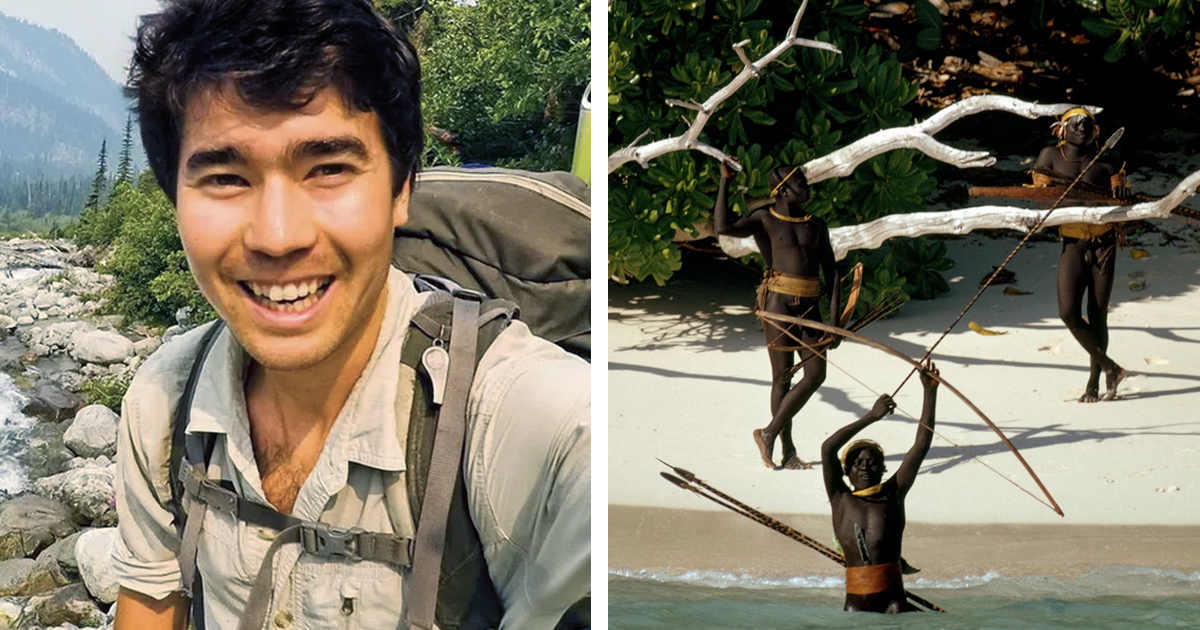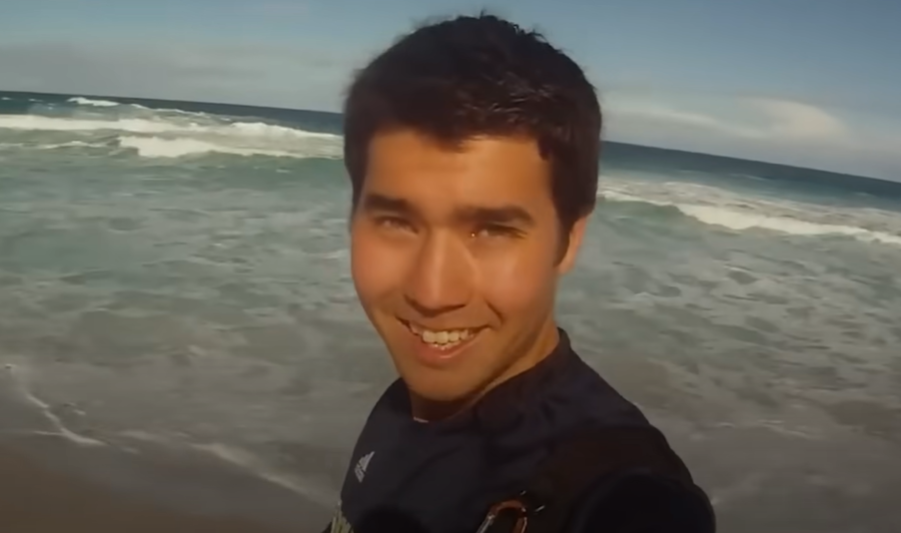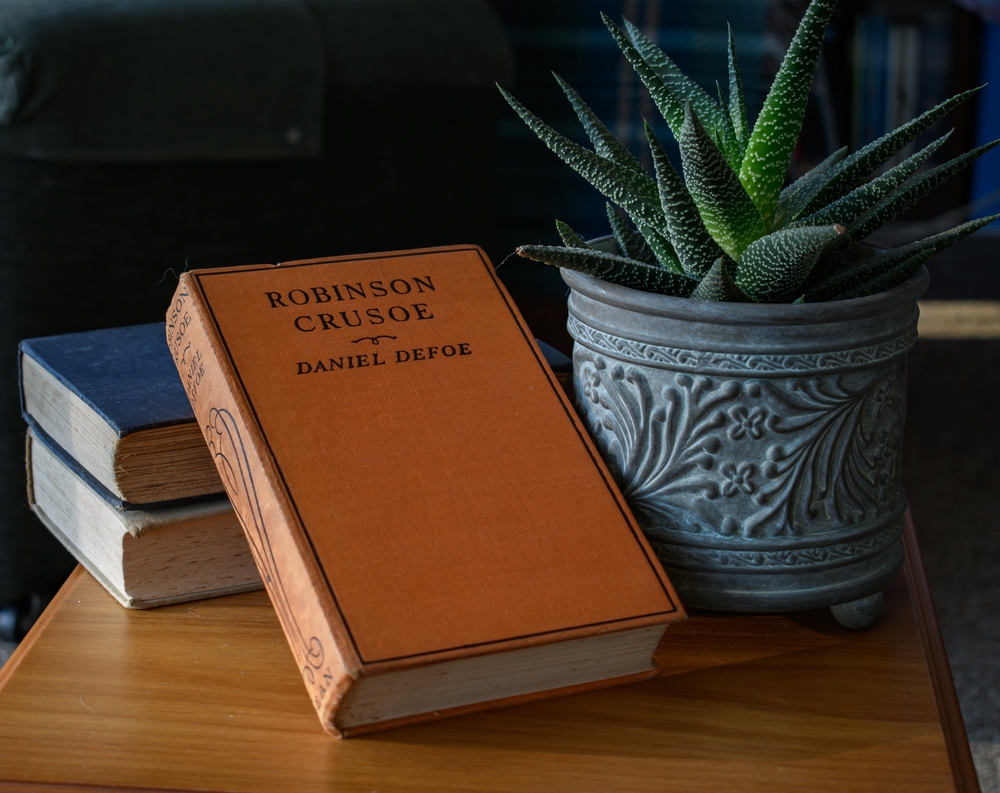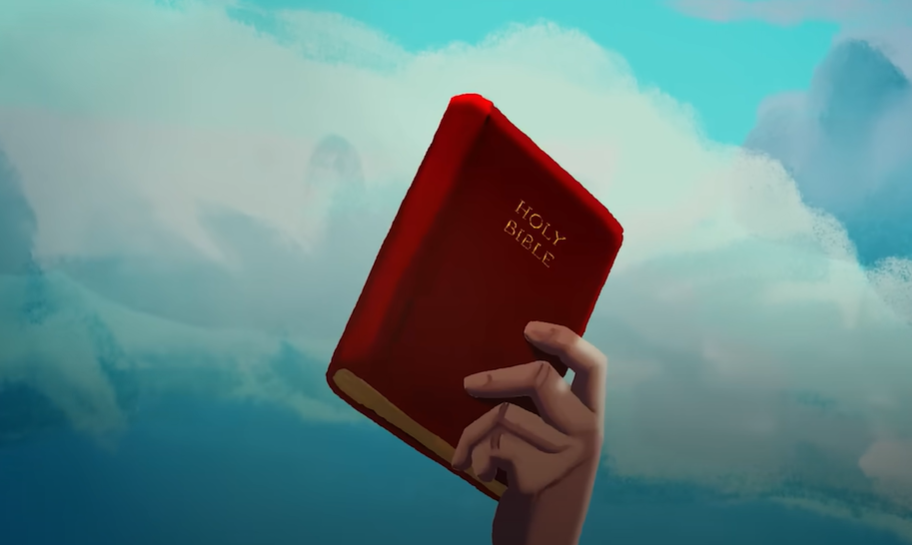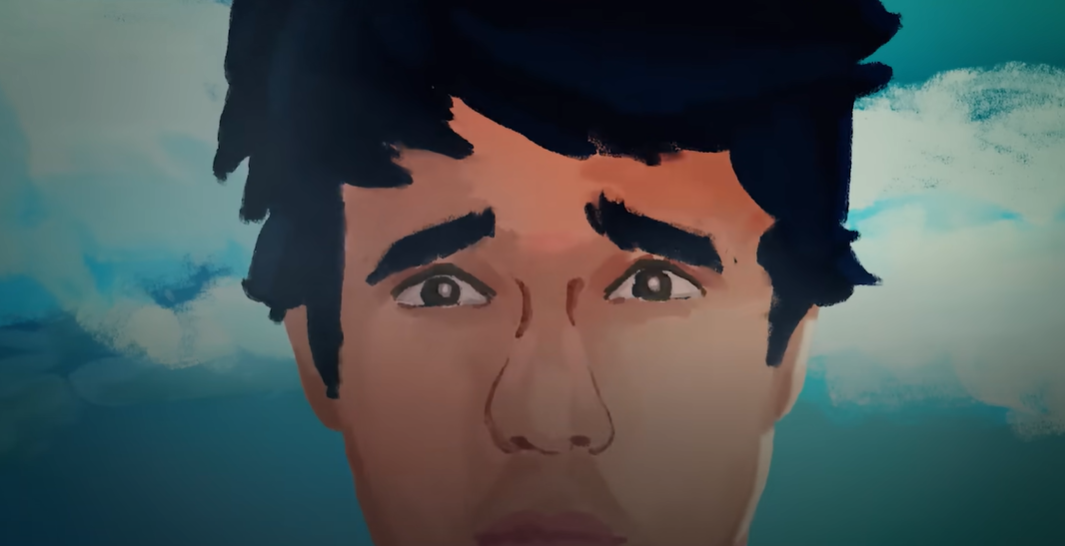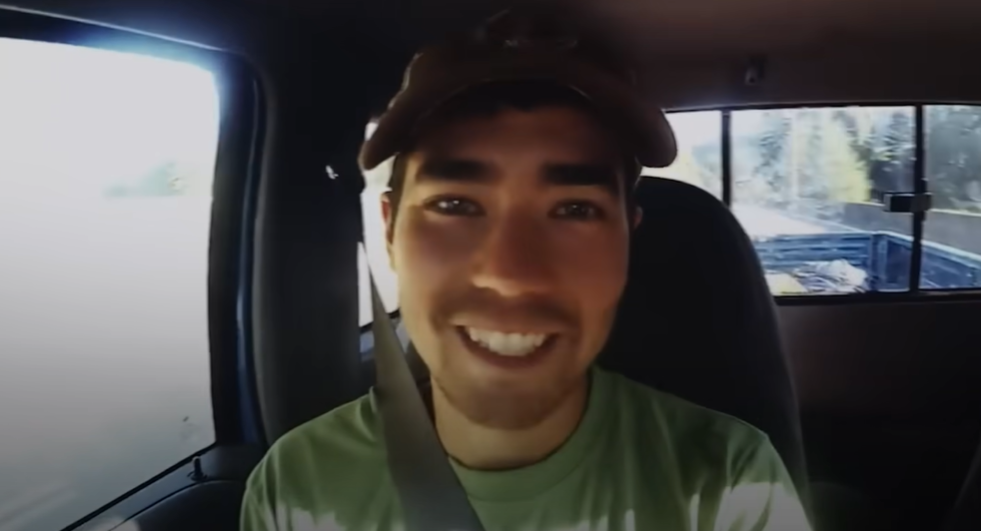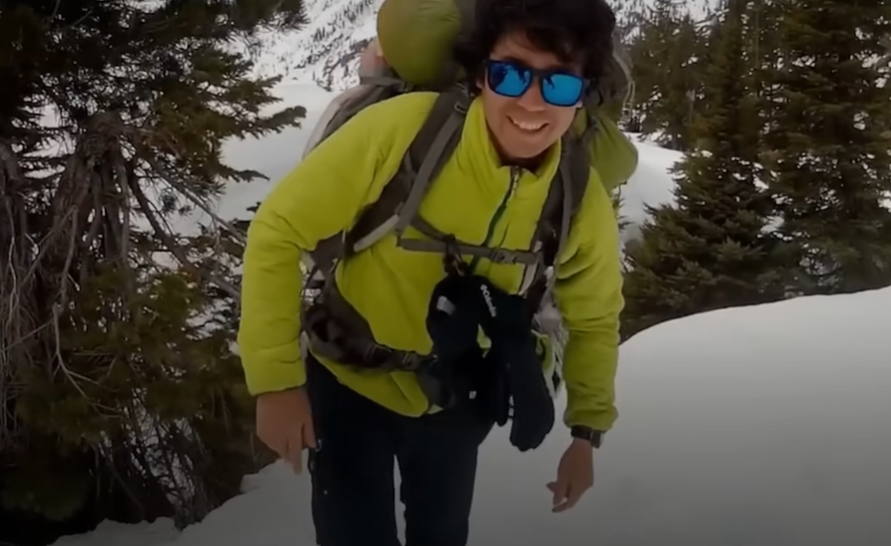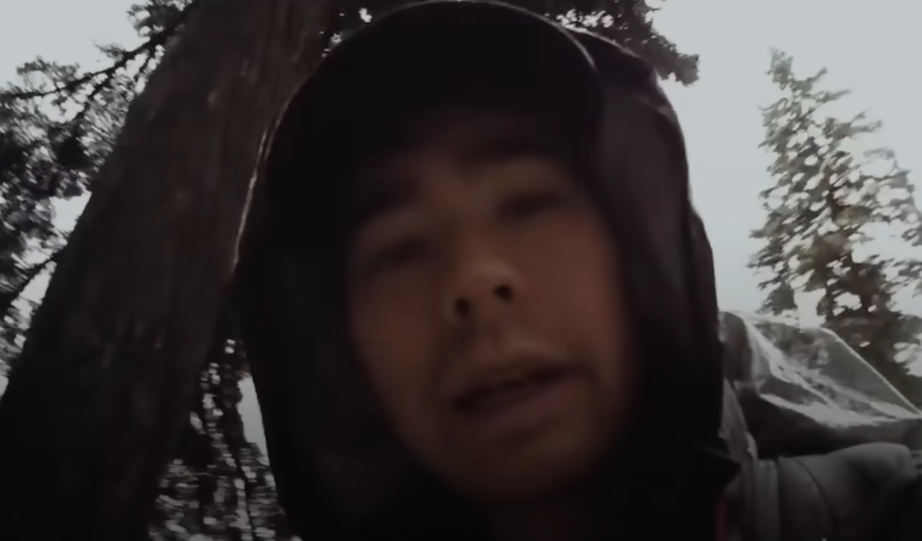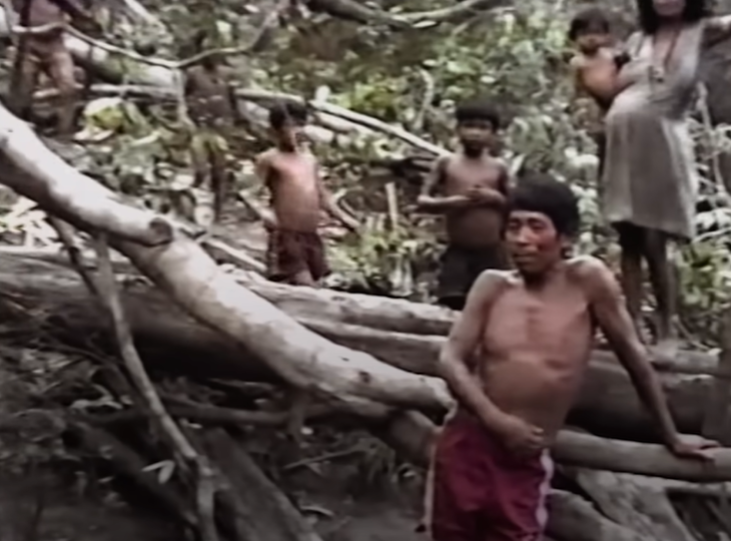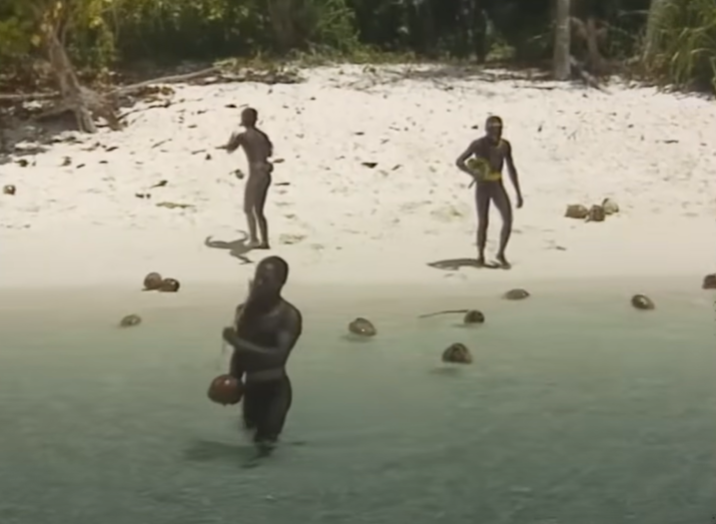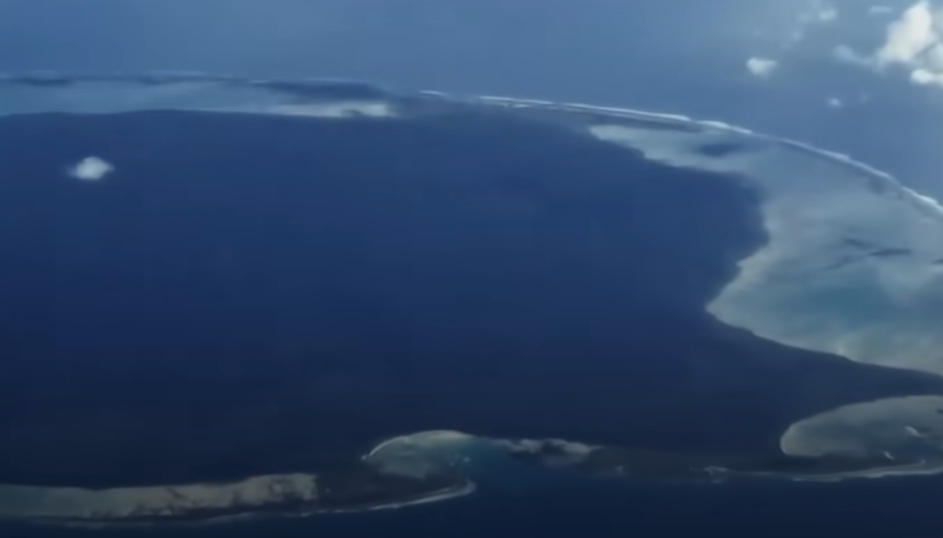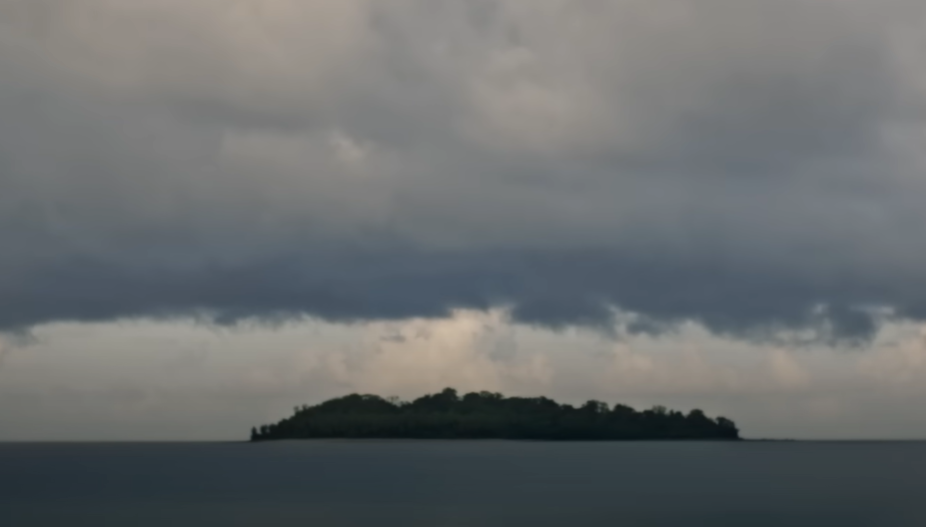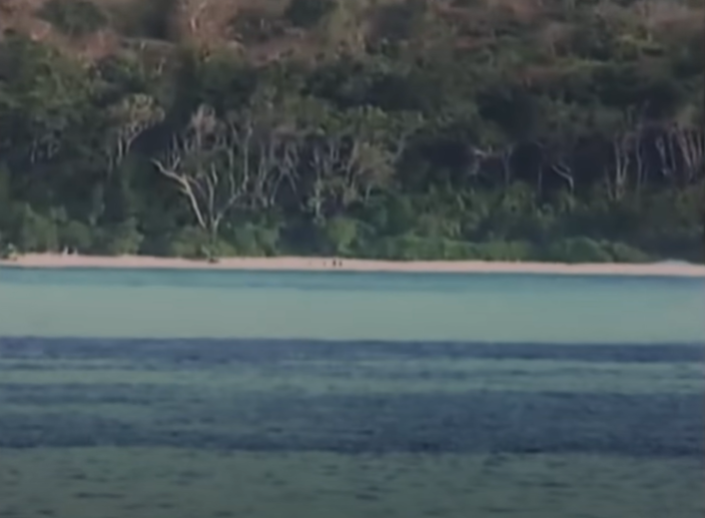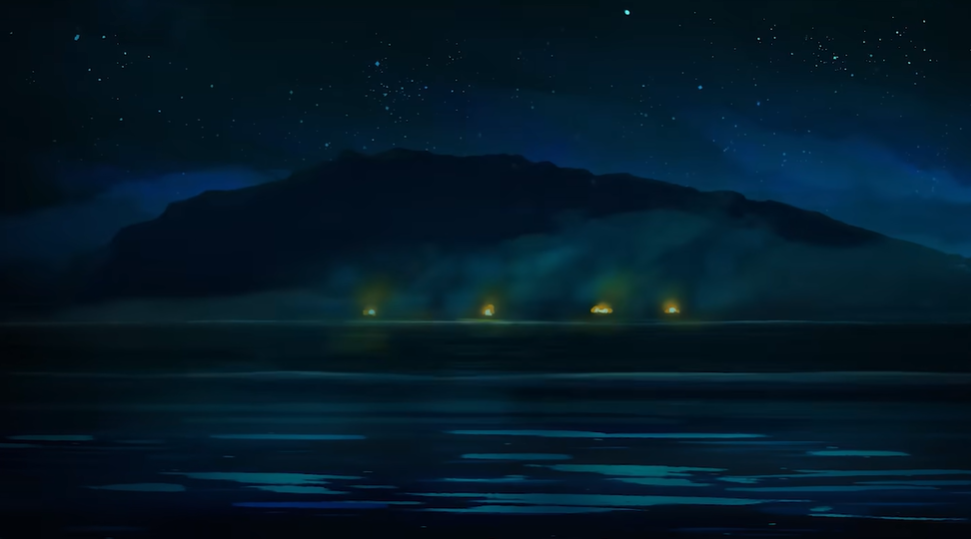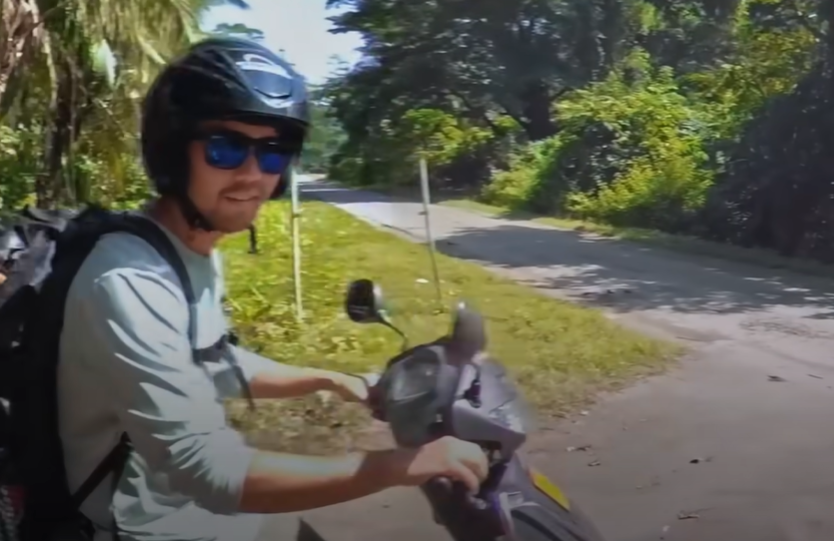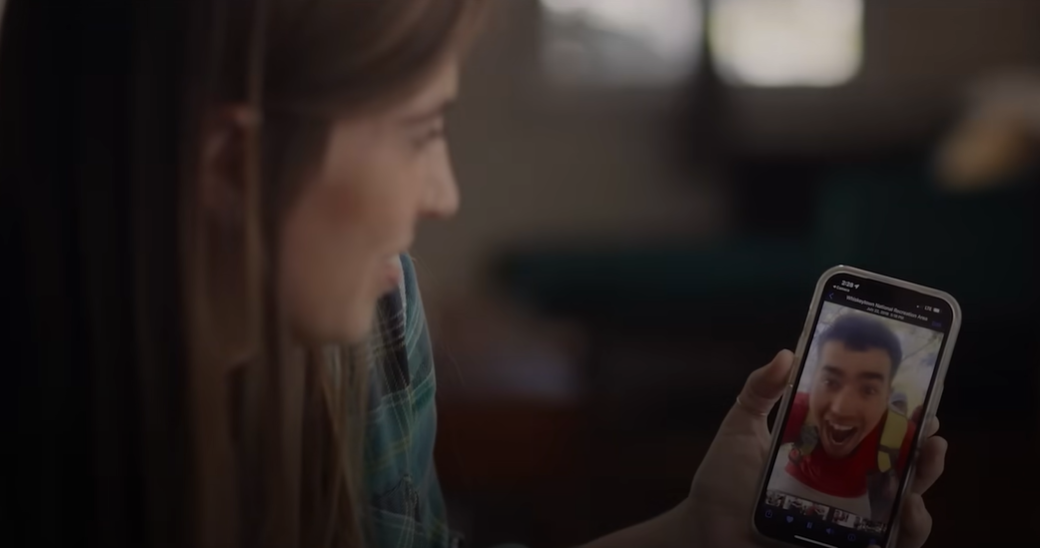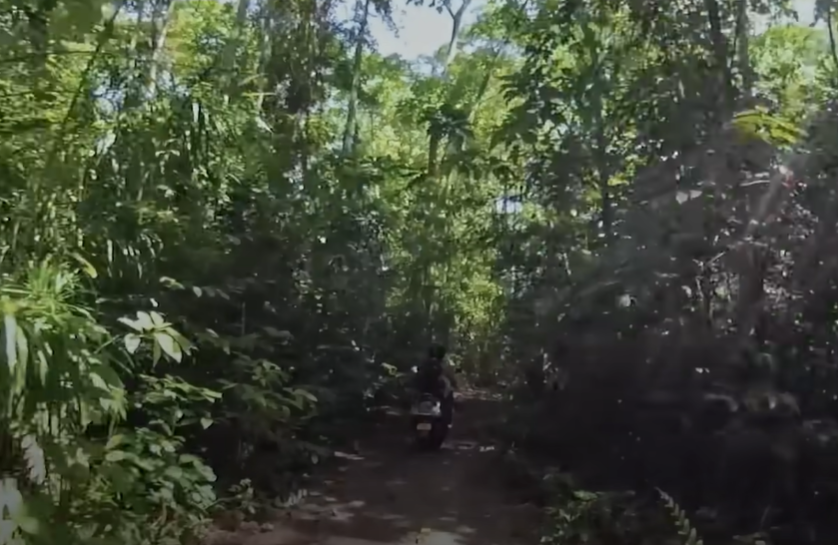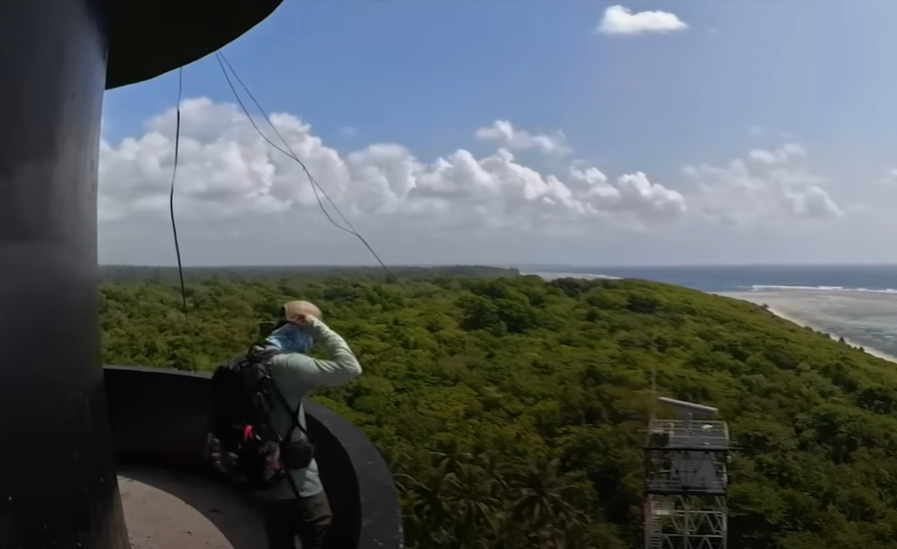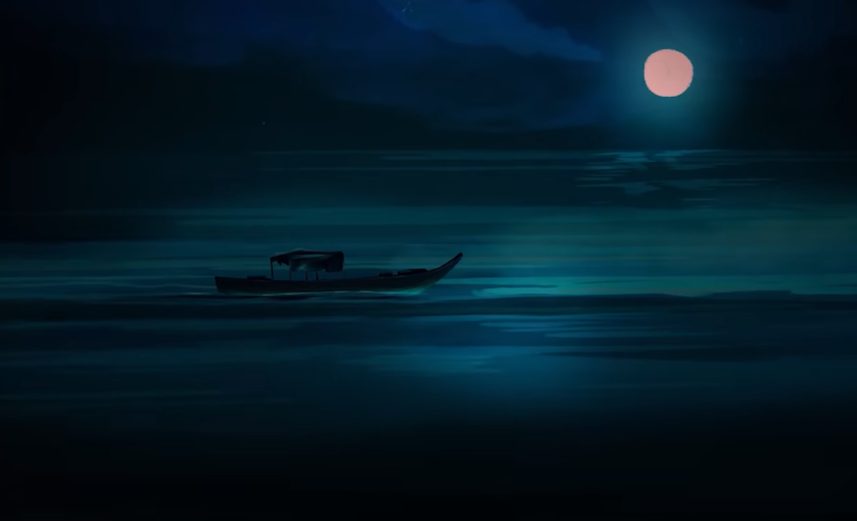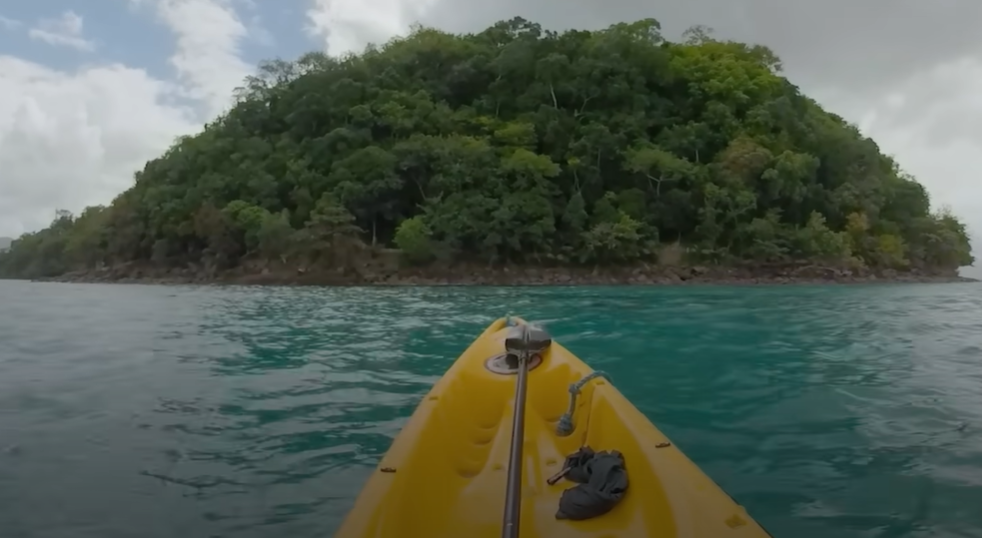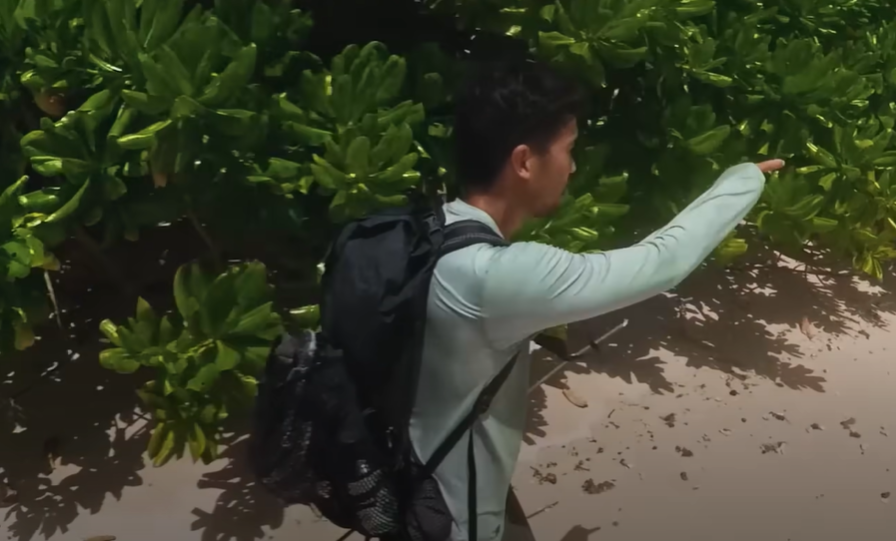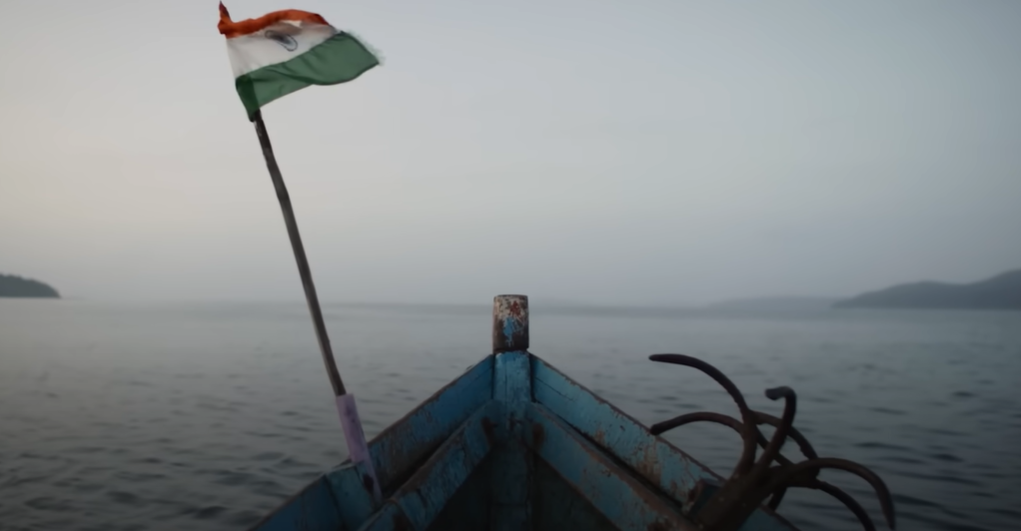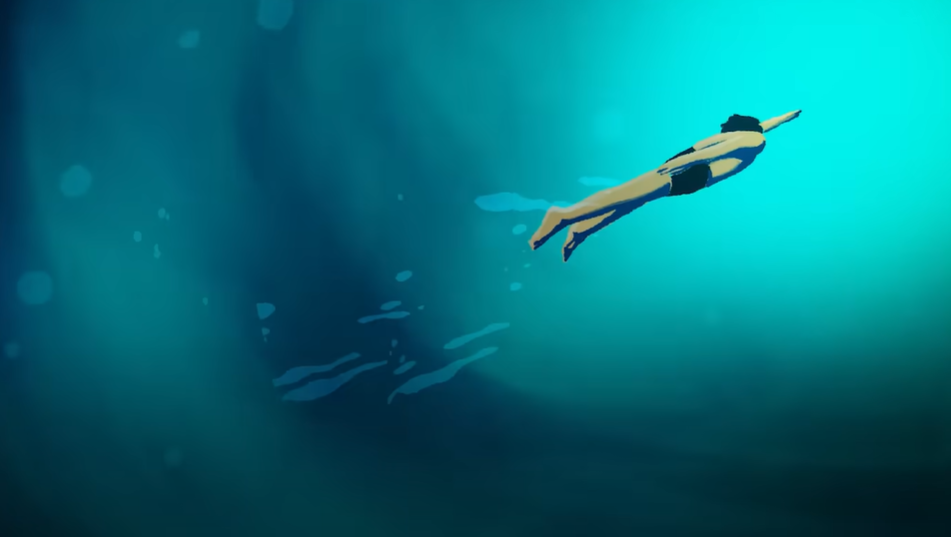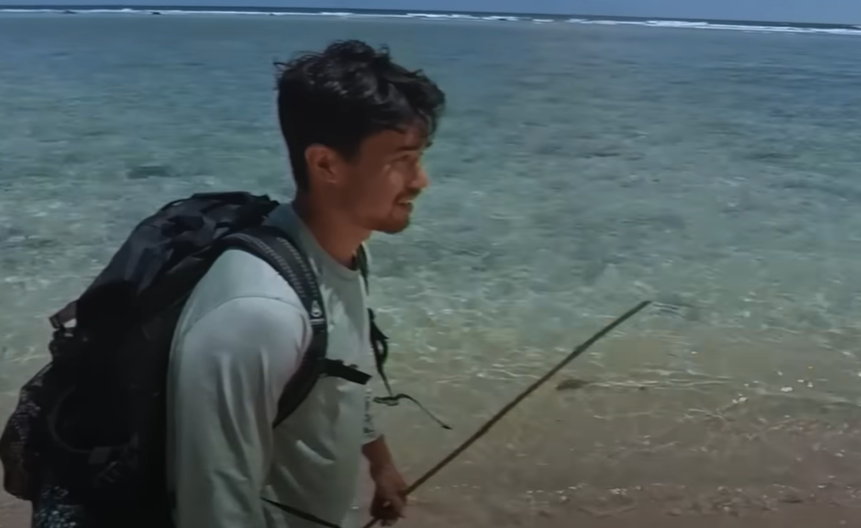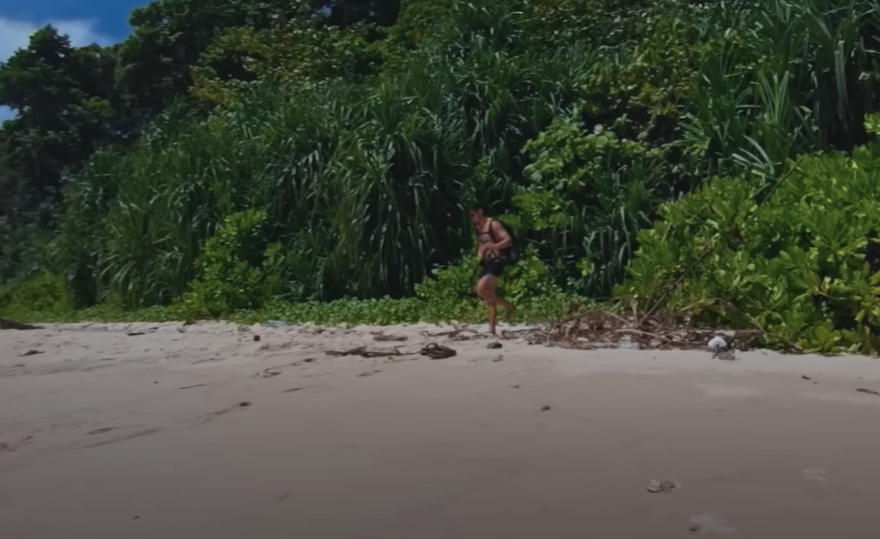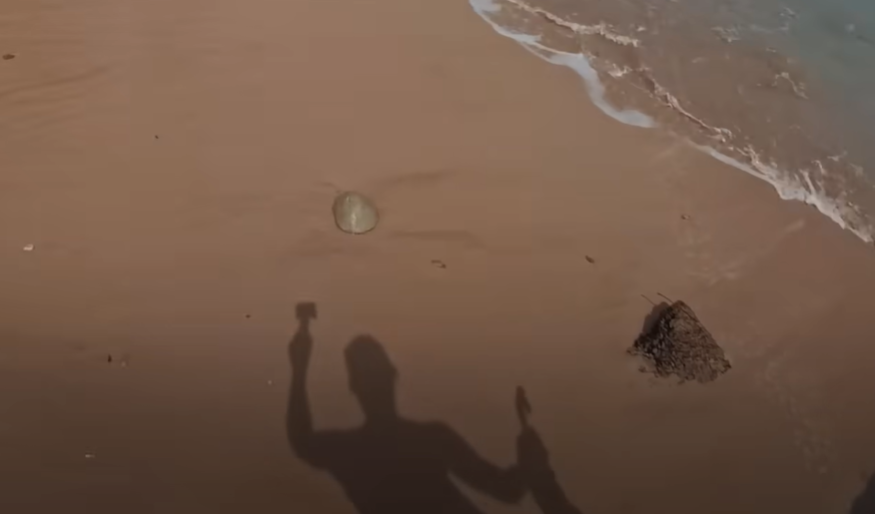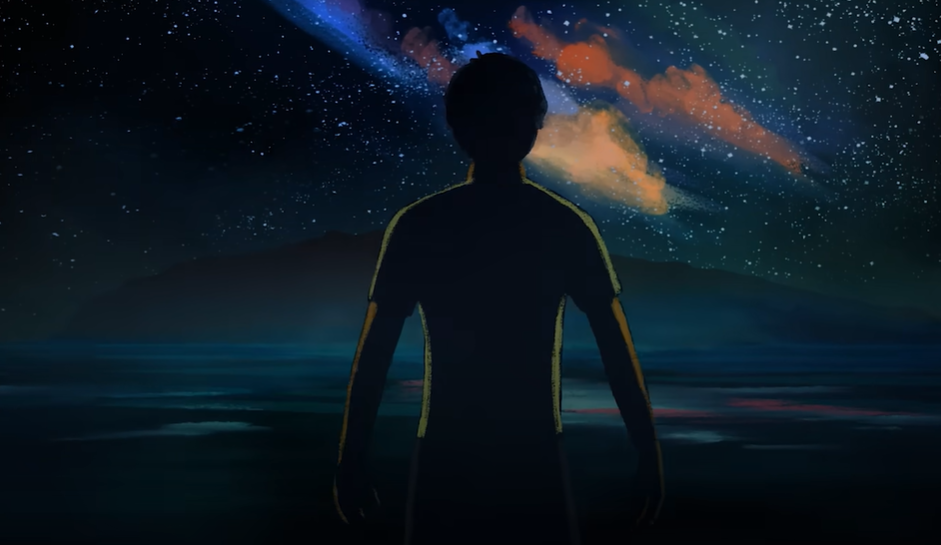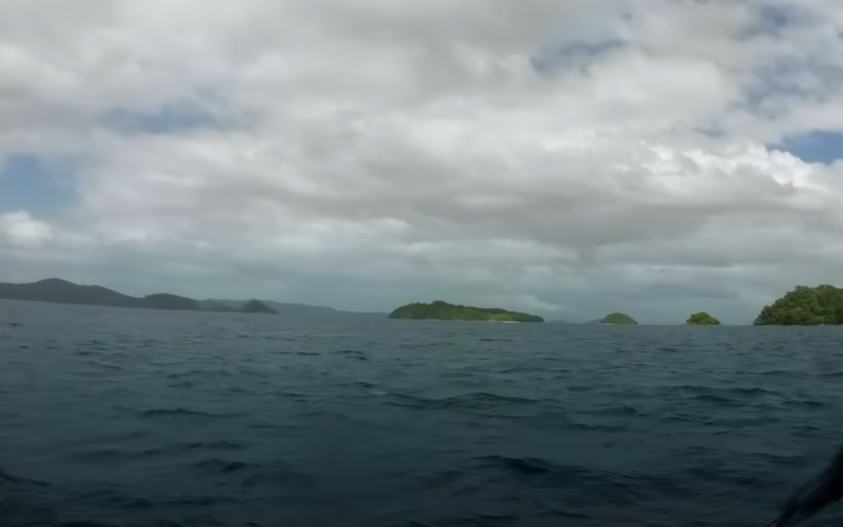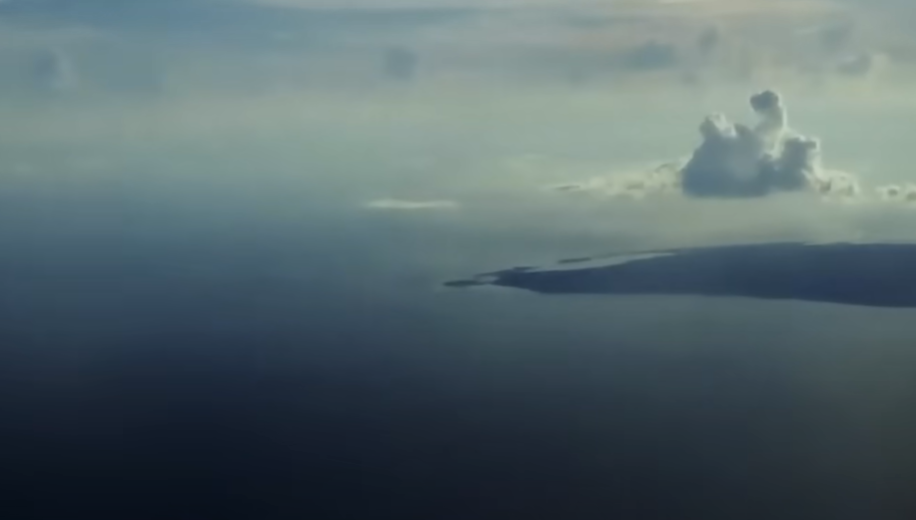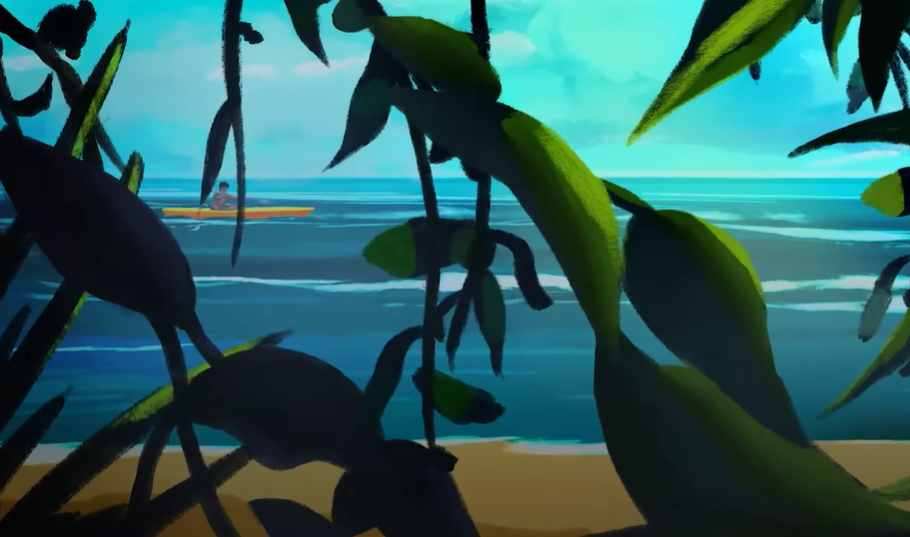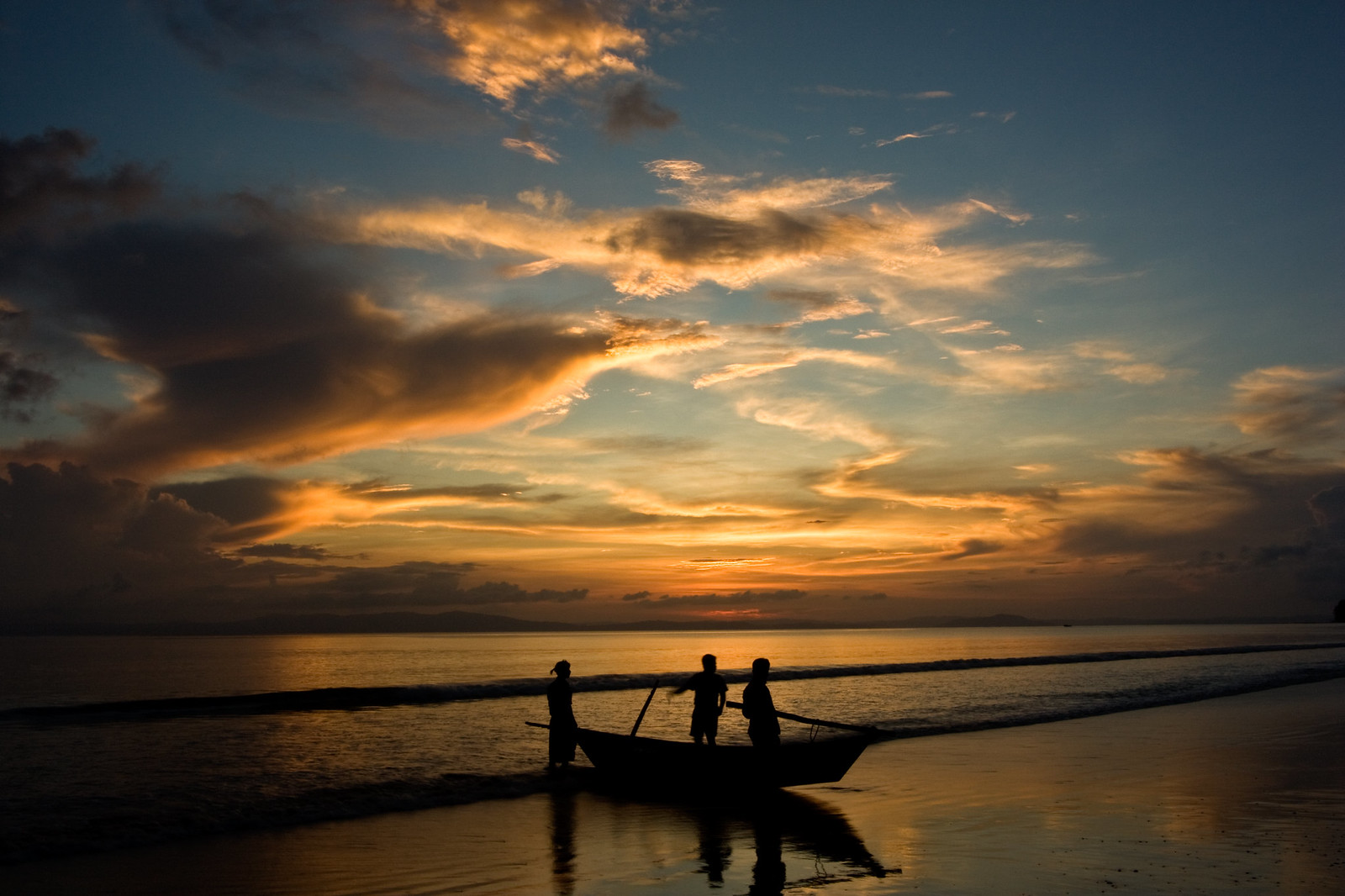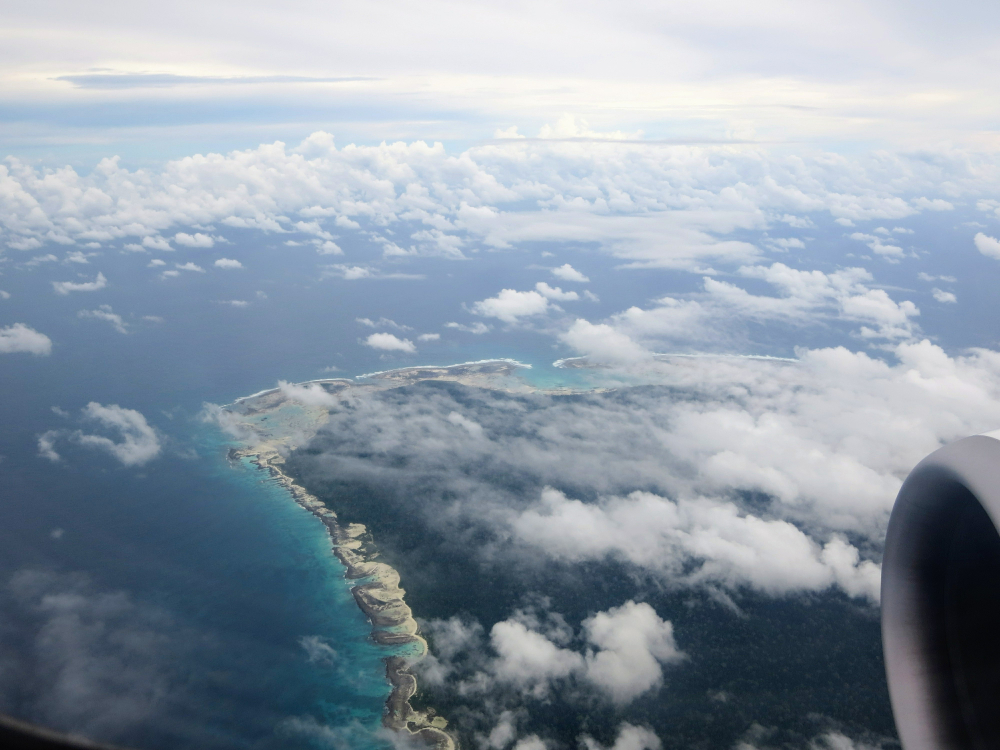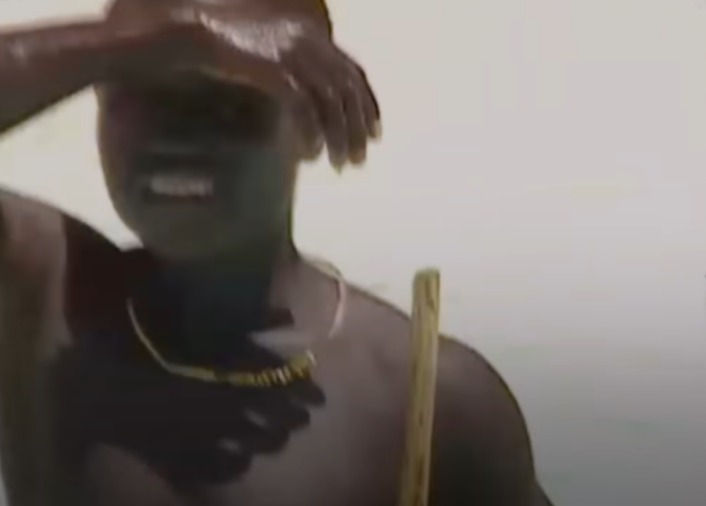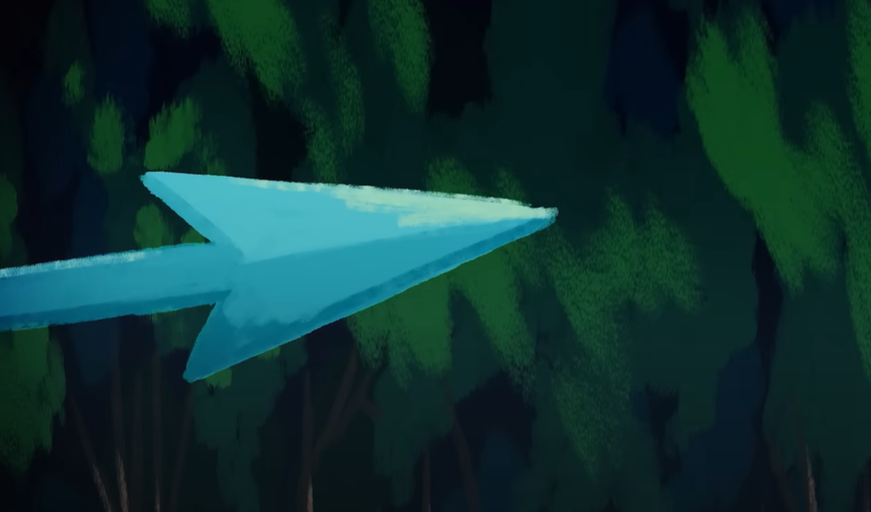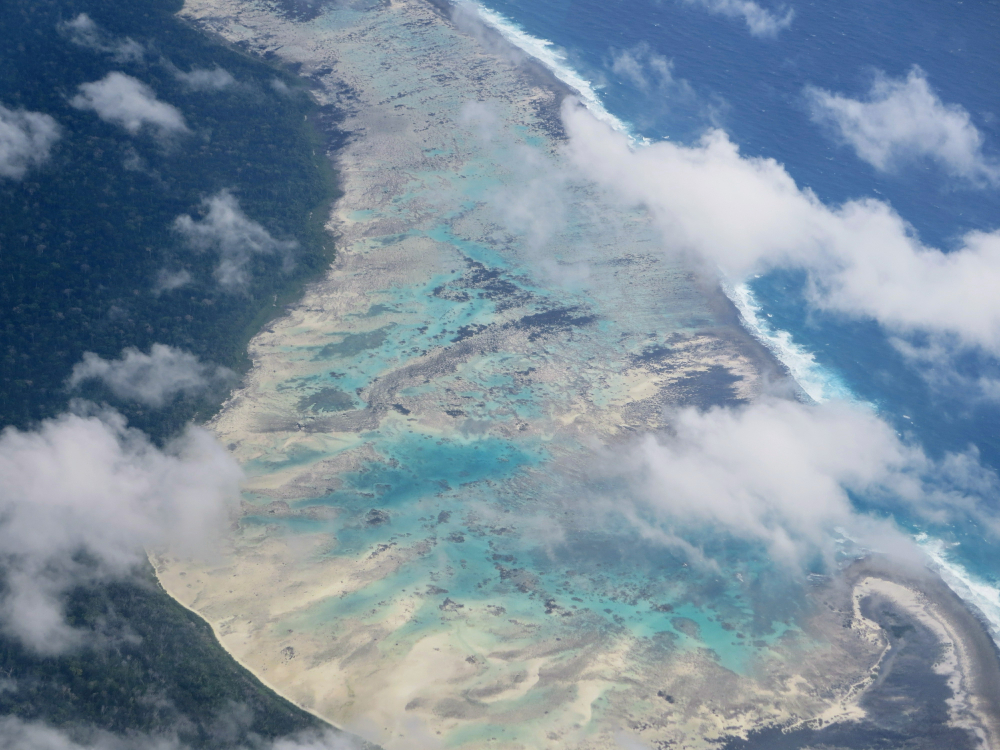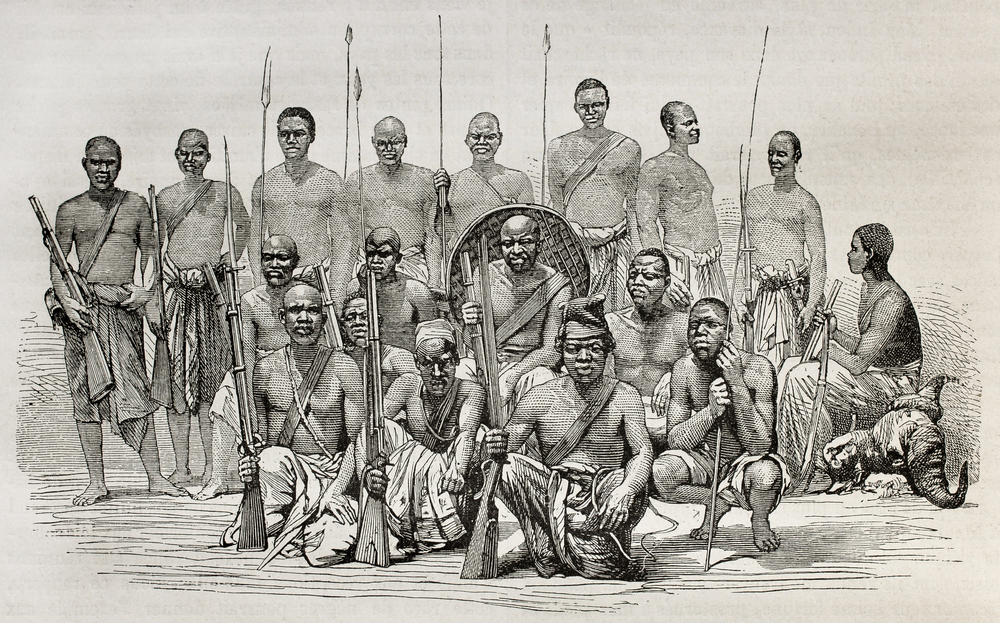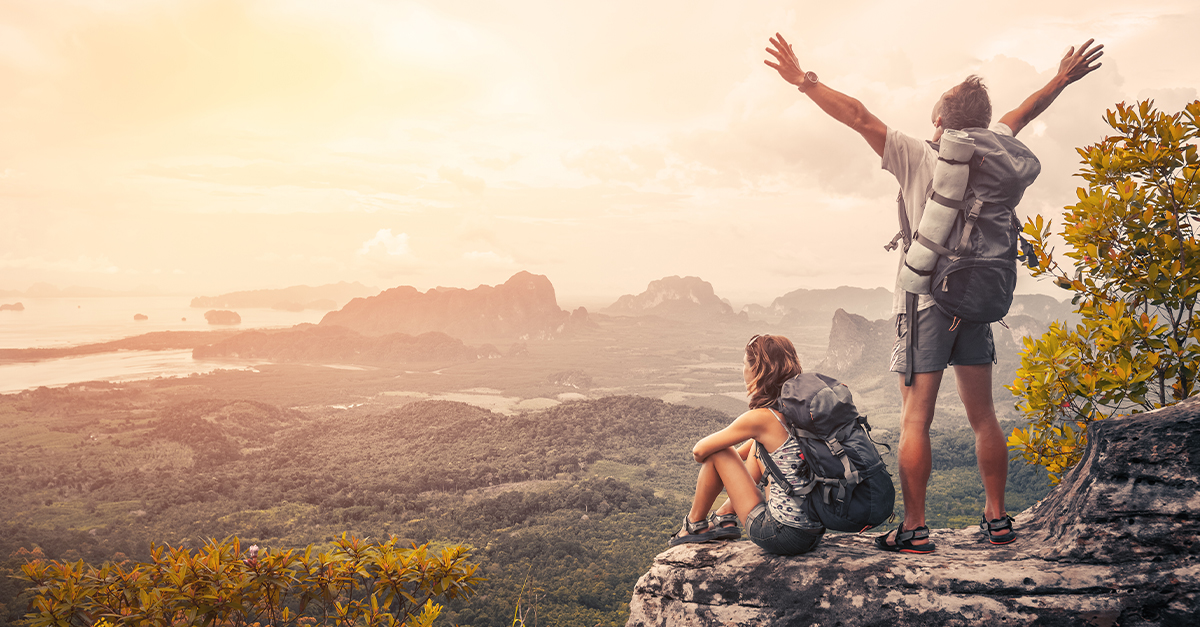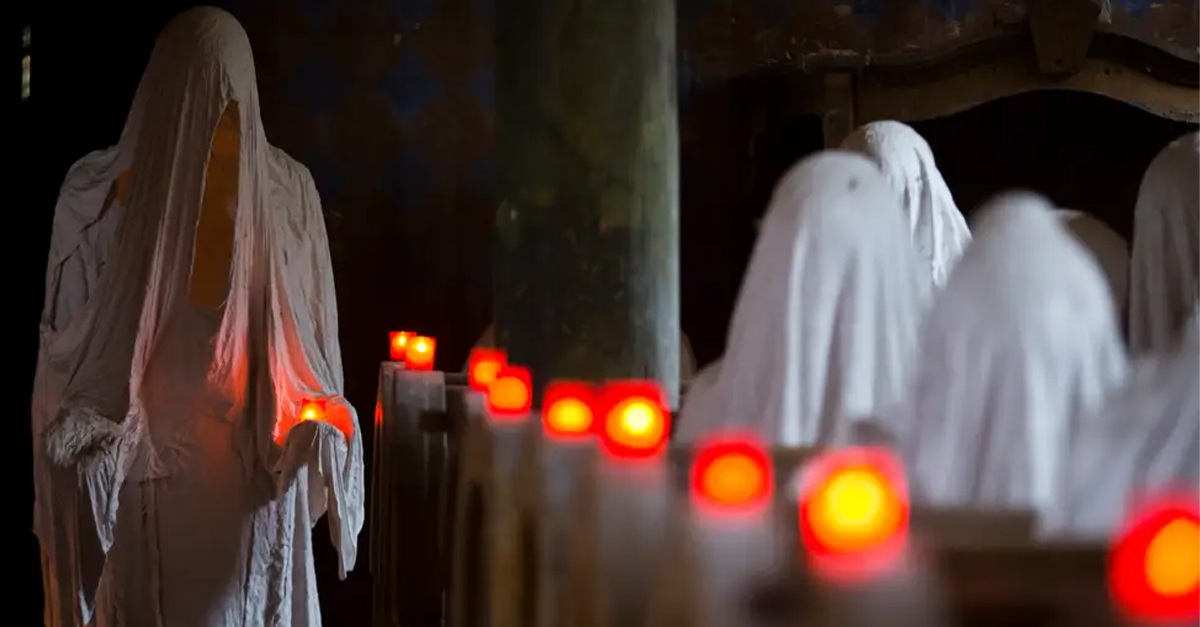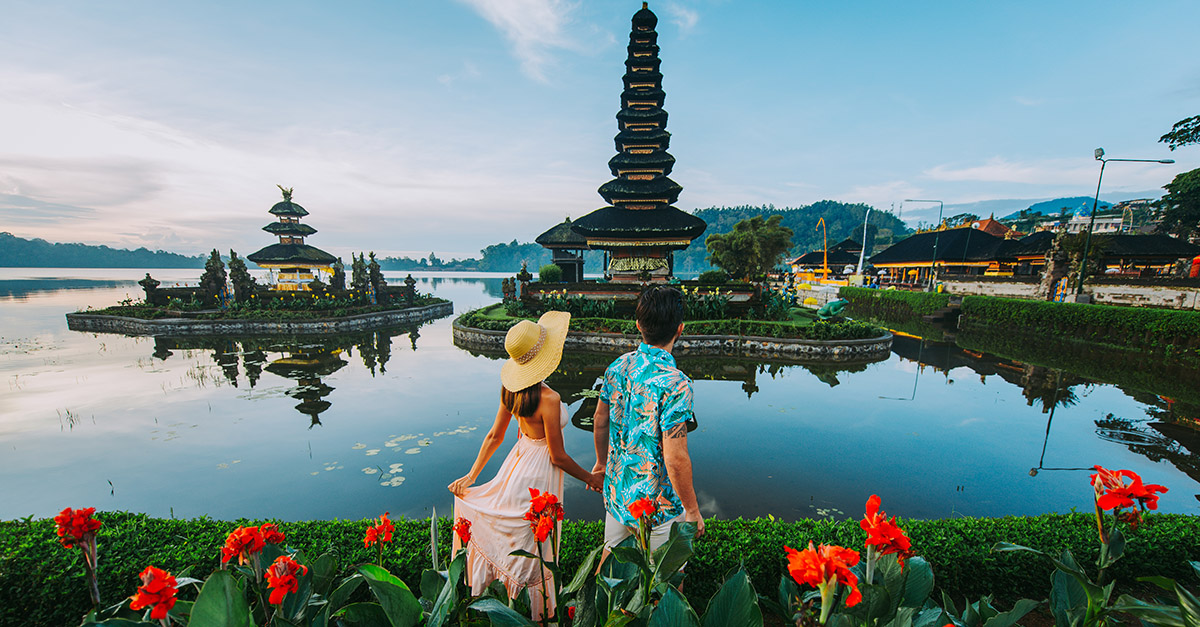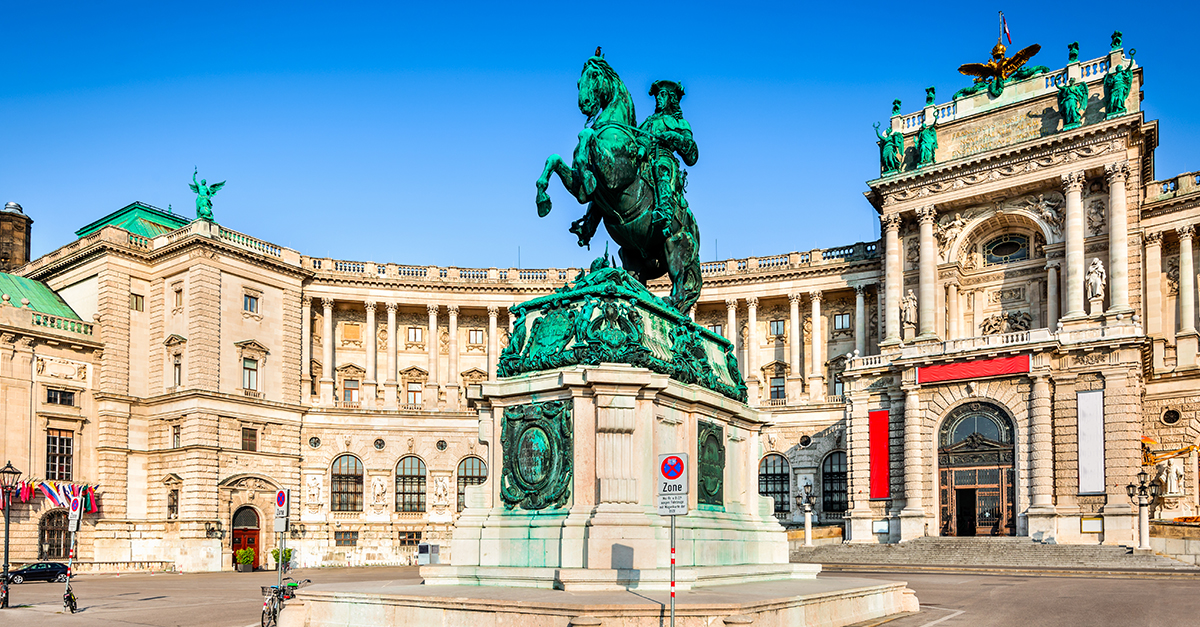Some places aren't meant to be visited
In 2018, one American man dared to go where history has told us never to go: North Sentinel Island. He thought the trip would be a humble and fulfilling mission—but it ended up turning into his worst nightmare. This is his story.
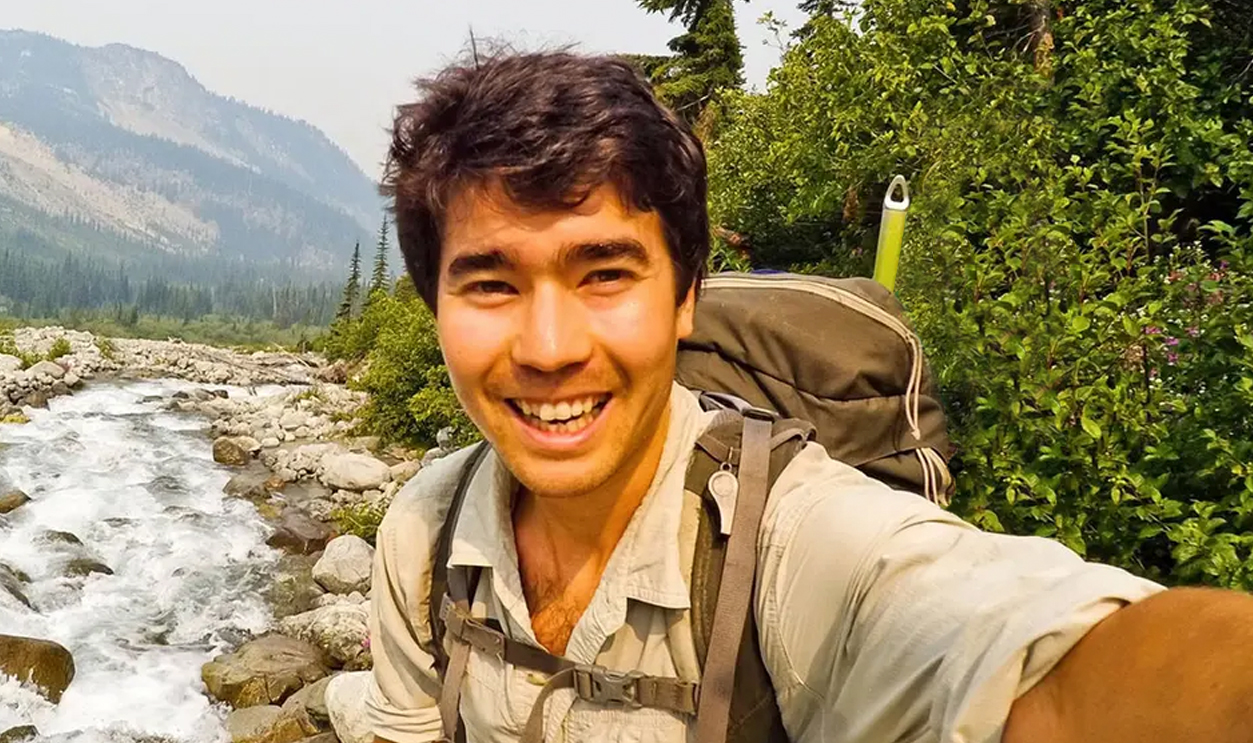
Meet John Allen Chau
Chau was born in Alabama but raised in Vancouver, Washington. He was raised by a Chinese psychiatrist father and an American attorney mother, and he grew up with two siblings. It was clear early on that he was destined to leave his mark on the world.
An adventurer since childhood
John Allen Chau discovered Robinson Crusoe in his father's office as a child, inspiring him to explore his backyard with his brother using makeshift bows and spears. They would paint their faces with juice from wild blackberries, pretending to be the characters from The Sign of the Beaver.
His desire to spread the word
He developed a passion for survival stories like "Hatchet" and admired adventurers like John Muir, David Livingstone, and Bruce Olson for their missionary work. Needless to say, Chau always dreamt big.
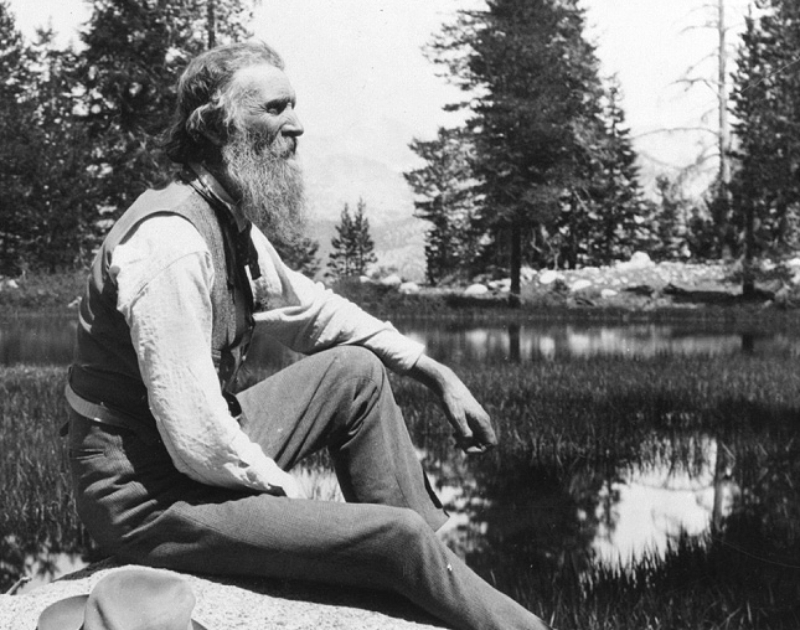 Library of Congress, Wikimedia Commons
Library of Congress, Wikimedia Commons
Raised in the faith, a follower of Christ
Chau was raised in a Christian home, likely affiliated with the Assemblies of God, a global Pentecostal church. He attended Vancouver Christian High, a small school with just 90 students in total.
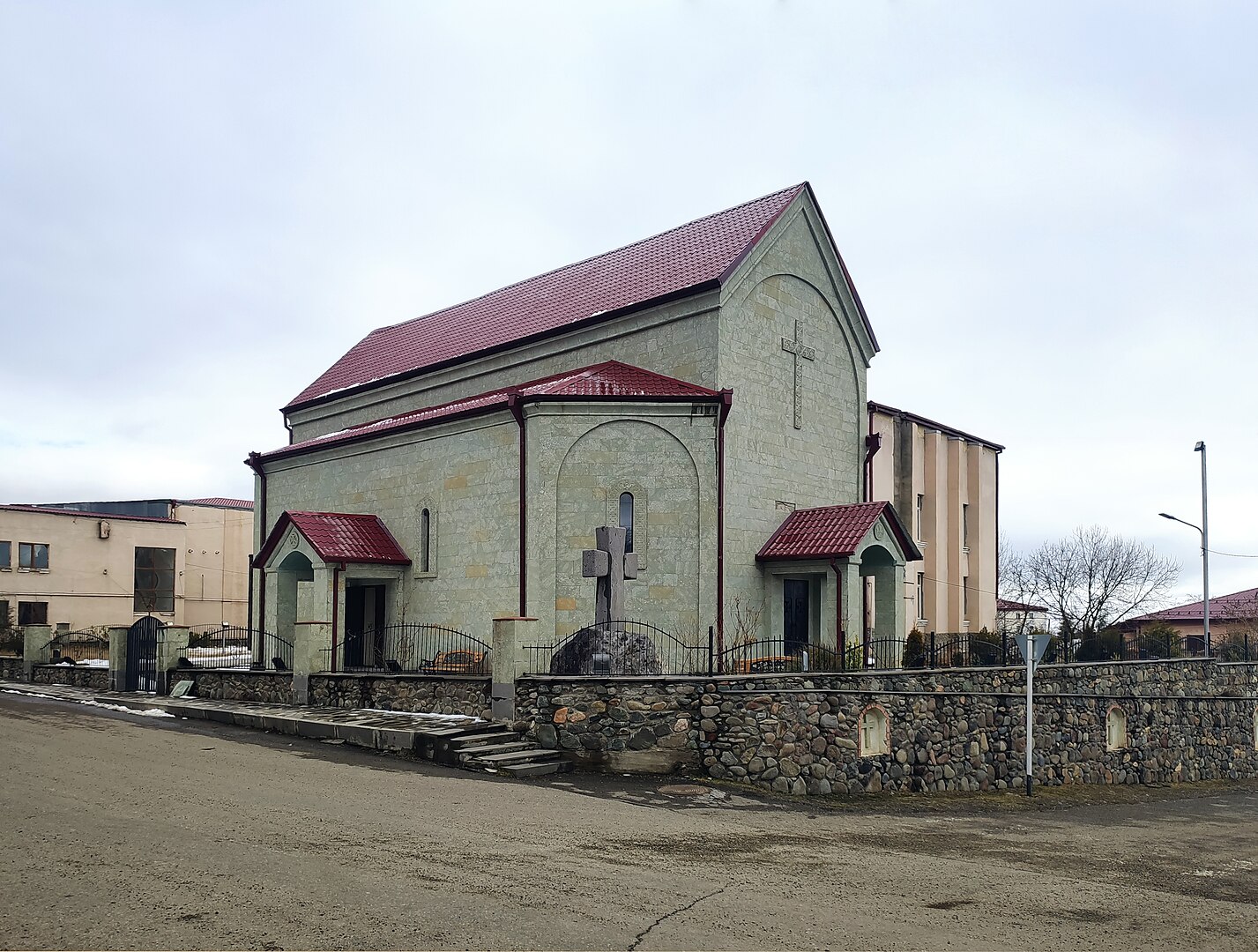 Reda Kerbush, CC BY-SA 4.0, Wikimedia Commons
Reda Kerbush, CC BY-SA 4.0, Wikimedia Commons
He was a decorated and involved scholar
Chau was heavily involved in clubs and charities, and he was known to go above and beyond. He achieved a gold medal in the Royal Rangers, similar to an Eagle Scout rank, by reading or listening to the entire Bible.
Missionaries inspired him greatly
Chau would often post quotes by American missionary and martyr Jim Eliot on his Facebook page, and he appeared to be deeply inspired by the missionaries who were killed in Ecuador in 1956. Chau's Christian faith and love for nature led him to consider becoming a missionary.
An eye-opening university experience
At Oral Roberts University, Chau immersed himself in evangelical culture, where smoking, drinking, cursing, and non-hetero relationships are prohibited. Some of his friends have said he was a handsome guy who often got the attention of many women—but he remained humble and committed to his beliefs.
 Dustin M. Ramsey (Kralizec!), CC BY-SA 2.5, Wikimedia Commons
Dustin M. Ramsey (Kralizec!), CC BY-SA 2.5, Wikimedia Commons
His first taste of travel
Chau frequently traveled, attending a Christian soccer academy in South Africa during college. After graduating in 2014, he conducted refugee outreach in Kurdistan and visited Israel with support from Covenant Journey, a right-wing organization.
No fear of death whatsoever
Sometimes, his travels turned very dangerous. He once had a near-death experience from rattlesnake bite, and he had a seriously low platelet count. On another occassion, he got lost on a 14-day hike, descended frozen waterfall to find way back.
Laying the foundation for the big trip
In 2015 and 2016, he visited the Andaman islands four times, connecting with the local Christian community but avoiding North Sentinel. Then, in 2017, he was admitted to a boot camp led by All Nations, a group in Kansas City dedicated to spreading the worship of Jesus to all people.
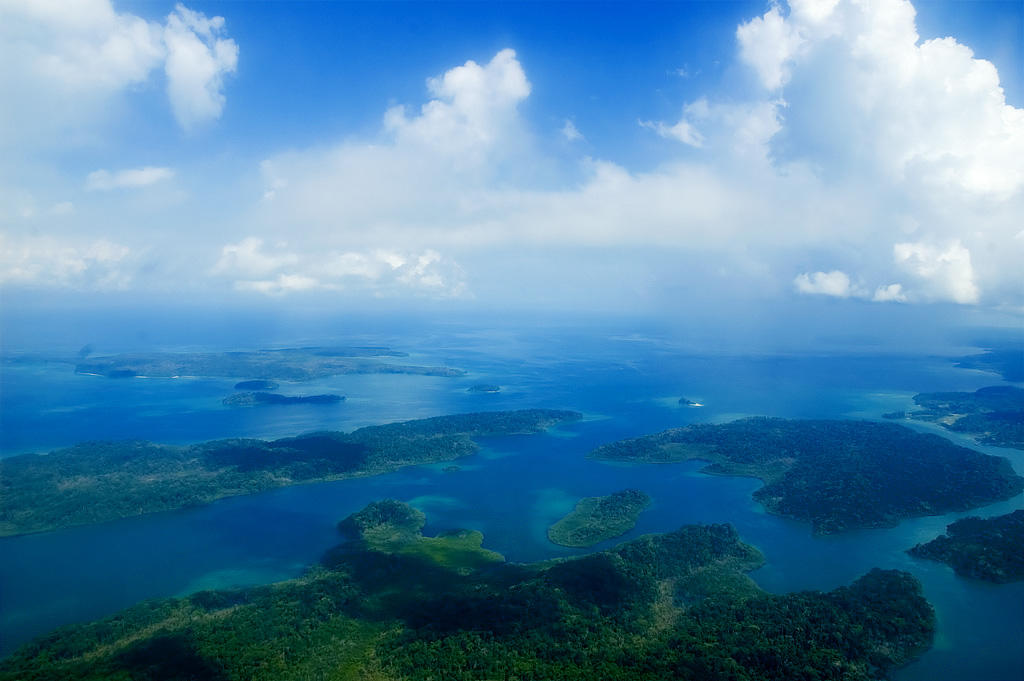 Venkatesh K, CC BY 2.0, Wikimedia Commons
Venkatesh K, CC BY 2.0, Wikimedia Commons
The purpose of the boot camp
At All Nations, he learned how to deal with reluctant and aggressive natives. During a simulated exercise at the boot camp, he excelled and was recognized as one of the program's top trainees by leader Mary Ho.
Switching gears: What is North Sentinel Island?
North Sentinel Island is famously known as the most isolated island in the world. It is home to the Sentinelese people, who are shrouded in mystery due to their extreme reclusiveness. The island is so remote that it lacks harbors and access to shipping paths. It is also subject to strict Indian government restrictions—for good reason.
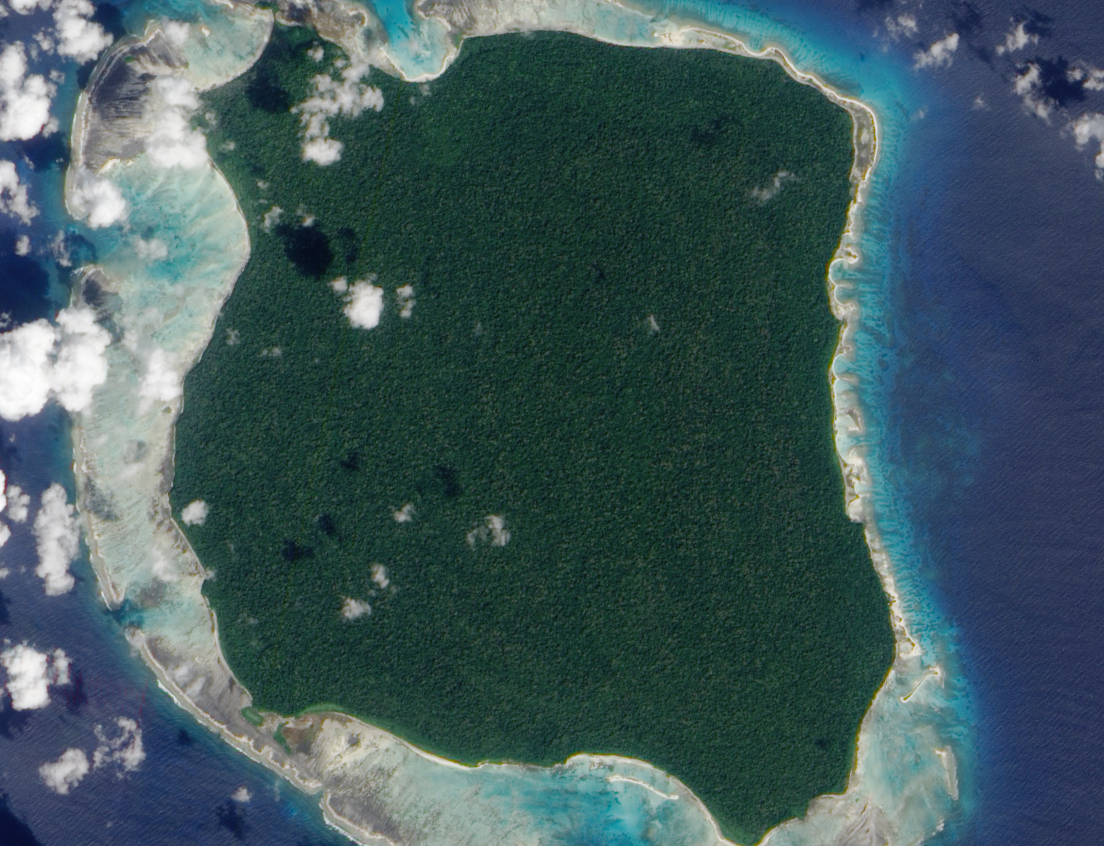 Jesse Allen, Wikimedia Commons
Jesse Allen, Wikimedia Commons
It is heavily guarded
The Indian Navy is monitoring the waters surrounding the island to prevent any unauthorized individuals from accessing it. However, as Mr. Chau demonstrated, that ring of security could be breached rather easily.
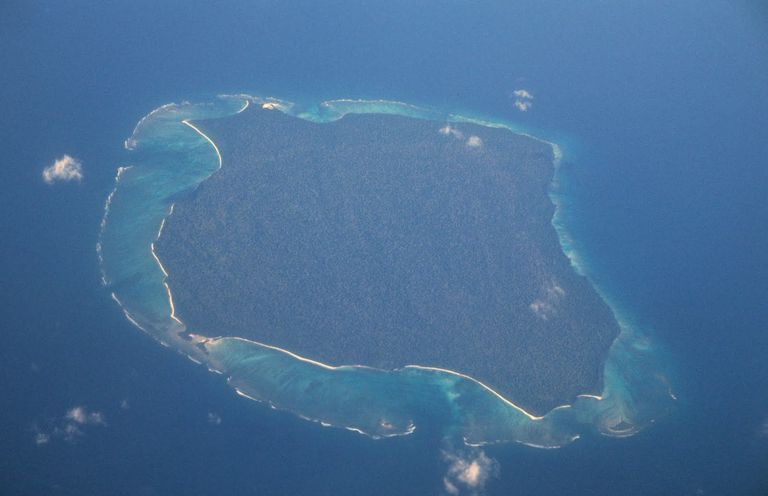 Medici82, CC BY-SA 4.0, Wikimedia Commons
Medici82, CC BY-SA 4.0, Wikimedia Commons
The mysterious Sentinelese people
The Sentinelese people reside in the Andaman Islands in the Bay of Bengal in India. They share ancestry with other native groups on the islands; however, they have been isolated for so long that their language is unintelligible to the Onge and Jarawa groups on the islands.
Their tribes have obscure origins
Little is known about the Sentinelese people, who have physical features resembling Africans. It is believed that they, like three other black tribes in the Andamans, migrated from the Cradle of Humankind in Africa.
Geographically isolated since time
Historically, it is believed that their tribes settled in a mountain range near Myanmar and that they became isolated by rising sea levels in 10,000 B.C. The discovery of black hunter-gatherers in Asia actually surprised many anthropologists who studied the area.
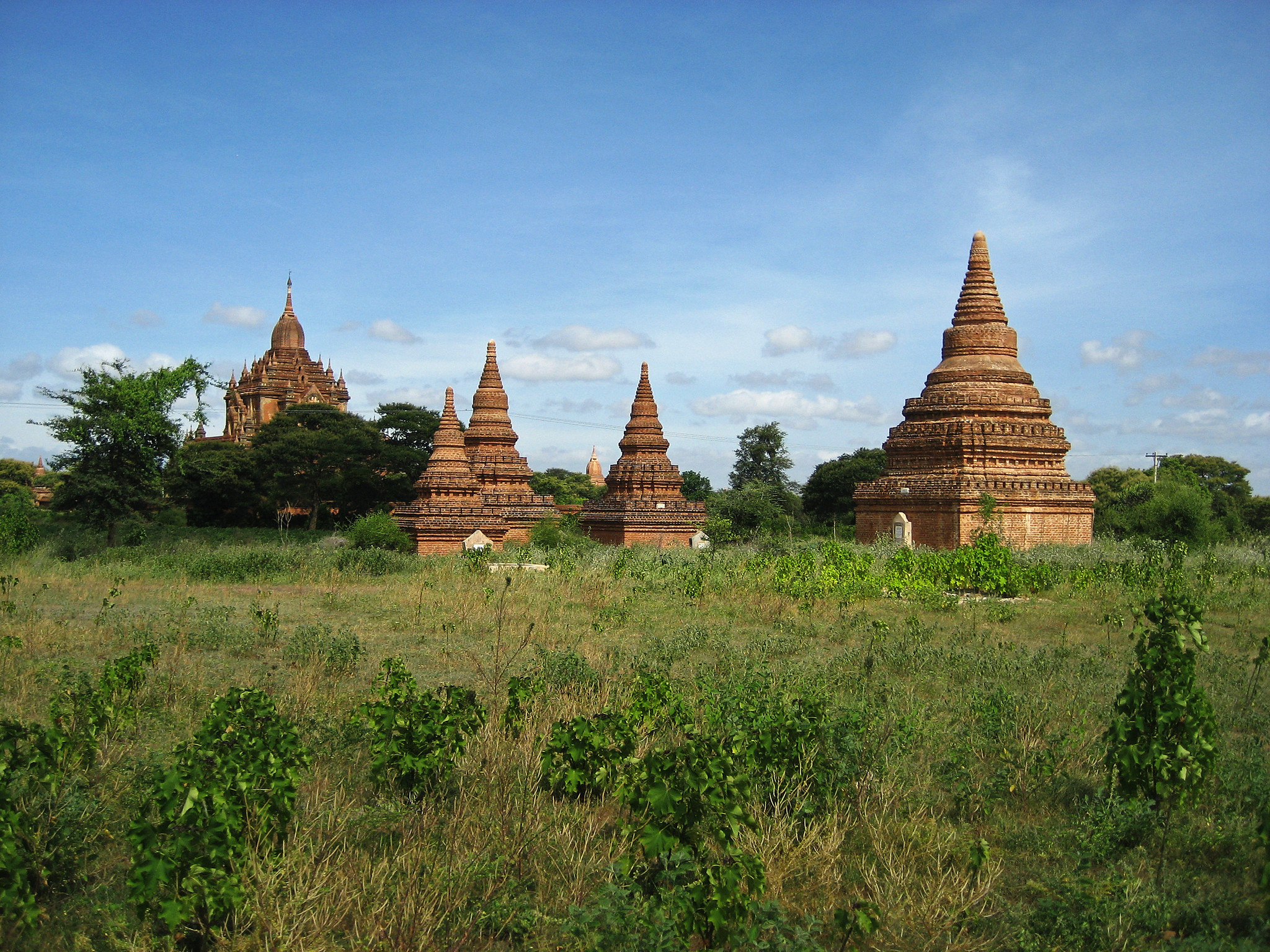 World Bank Photo Collection, Flickr
World Bank Photo Collection, Flickr
A small but thriving community
A 2011 census estimates that North Sentinel Island has around 80 to 150 inhabitants based on carrying capacity. Some anthropologists, however, say that the total Sentinelese population could range from 15-500.
A rare look inside a Sentinelese village
In 1967, during a rare visit to a Sentinelese village, it was noted that they live in lean-to huts with sloping roofs and burn fires outside of their homes. They craft small outrigger canoes and fish and gather crabs using lengthy poles in calm, shallow waters.
Deep down, they are warriors
The Sentinelese are hunter-gatherers who rely on wild fruits, eggs, and small animals for food. They are skilled with bows, arrows, spears, and knives, making intruders wary. The Sentinelese likely find tools and weapons washed up on shore, many with iron tips customized to suit their needs.
The Sentinelese are very protected
Getting within 3 nautical miles of the island is against the law. Also, in 2017, the Indian Government implemented regulations that prohibit capturing images or recording videos of the Andaman tribes.
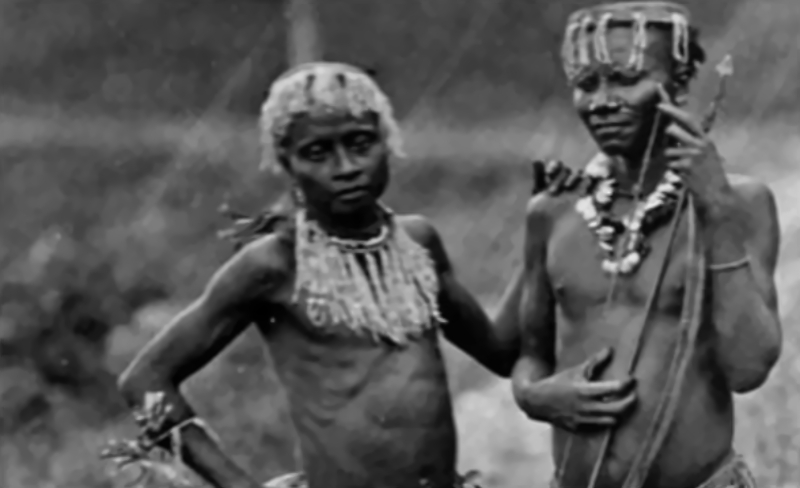 Unknown Author, Wikimedia Commons
Unknown Author, Wikimedia Commons
They've always hated visitors
Knowledge of the hostility of the Sentinelese towards outsiders was first really experienced back in 1867. An Indian merchant vessel called Nineveh got stuck on a coral reef, leading its 106 86 passengers to swim to the beach.
A strong and forceful warning
The castaways spent three days on the island before the Sentinelese people, armed with bows and arrows, made it clear they had overstayed their welcome. Nineveh passengers and crew responded with sticks and stones, and eventually they were saved by a Royal Navy ship.
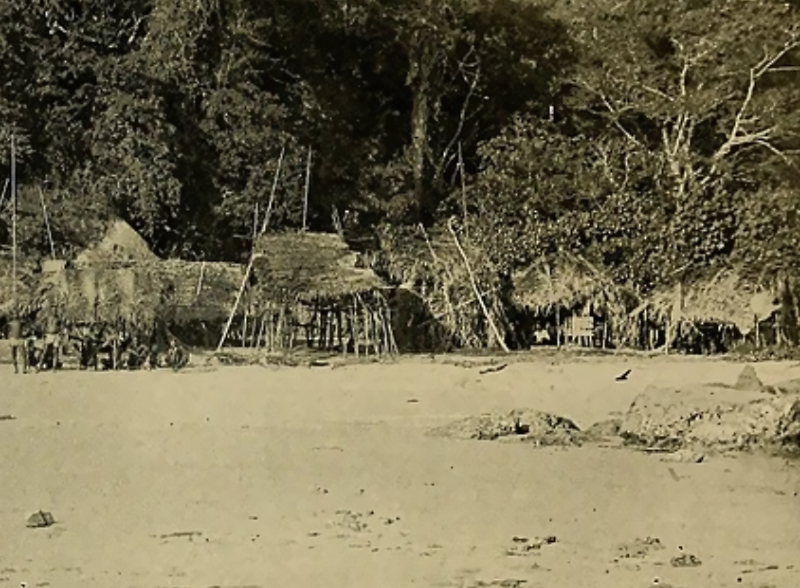 Unknown Author, Wikimedia Commons
Unknown Author, Wikimedia Commons
The British wanted North Sentinel Island
While on the island, The British decided to claim part of North Sentinel Island as their own. Maurice Vidal Portman, a Royal Navy officer, took control of the Andaman and Nicobar colony and visited North Sentinel Island with a group that included convicts and trackers. He claimed himself to be an anthropologist.
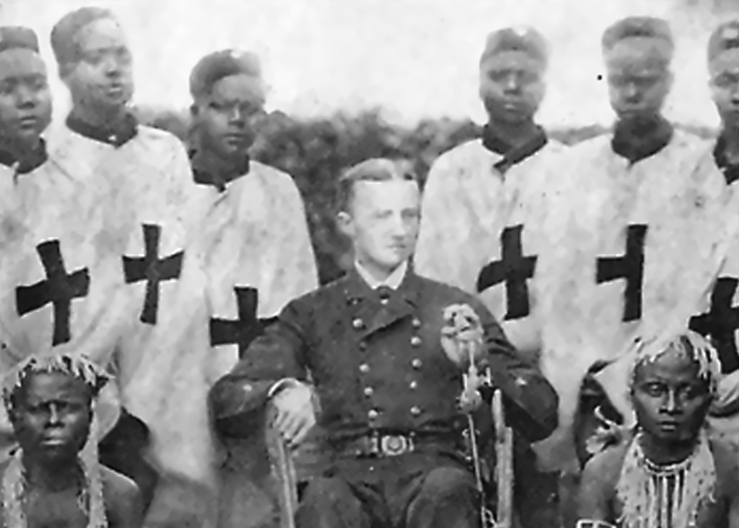 Unknown author, Wikimedia Commons
Unknown author, Wikimedia Commons
The British's bad first impression
The search team found deserted villages where residents had escaped inland to avoid trespassers. An elderly couple and four children were discovered and they fell seriously ill. The couple passed away, prompting Portman to leave the sick children and gifts on North Sentinel Island. Naturally, this left a bad impression on the Sentinelese.
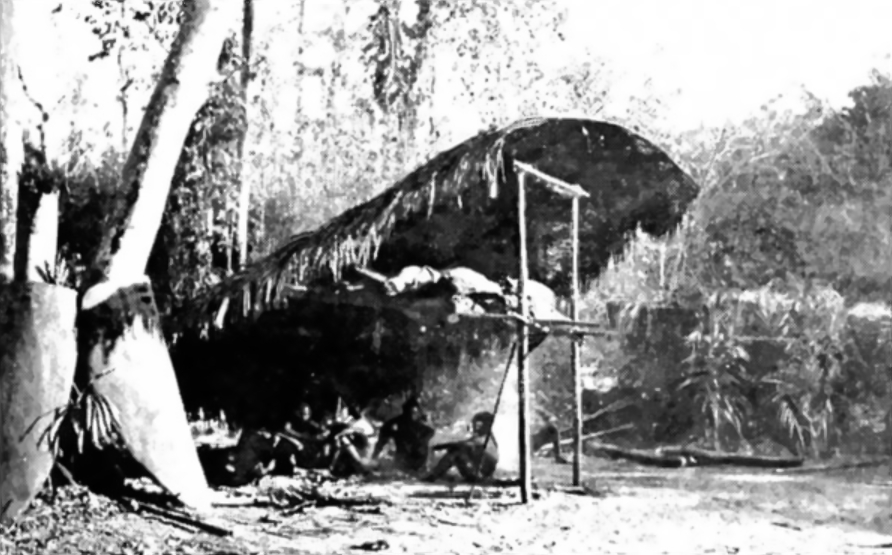 Maurice Vidal Portman, Wikimedia Commons
Maurice Vidal Portman, Wikimedia Commons
Even today, they are hostile towards outsiders
After the 2004 Asian tsunami, the Sentinelese poeple gained global attention when one of their tribal members was seen on a beach shooting arrows at a helicopter that was simply checking on their well-being.
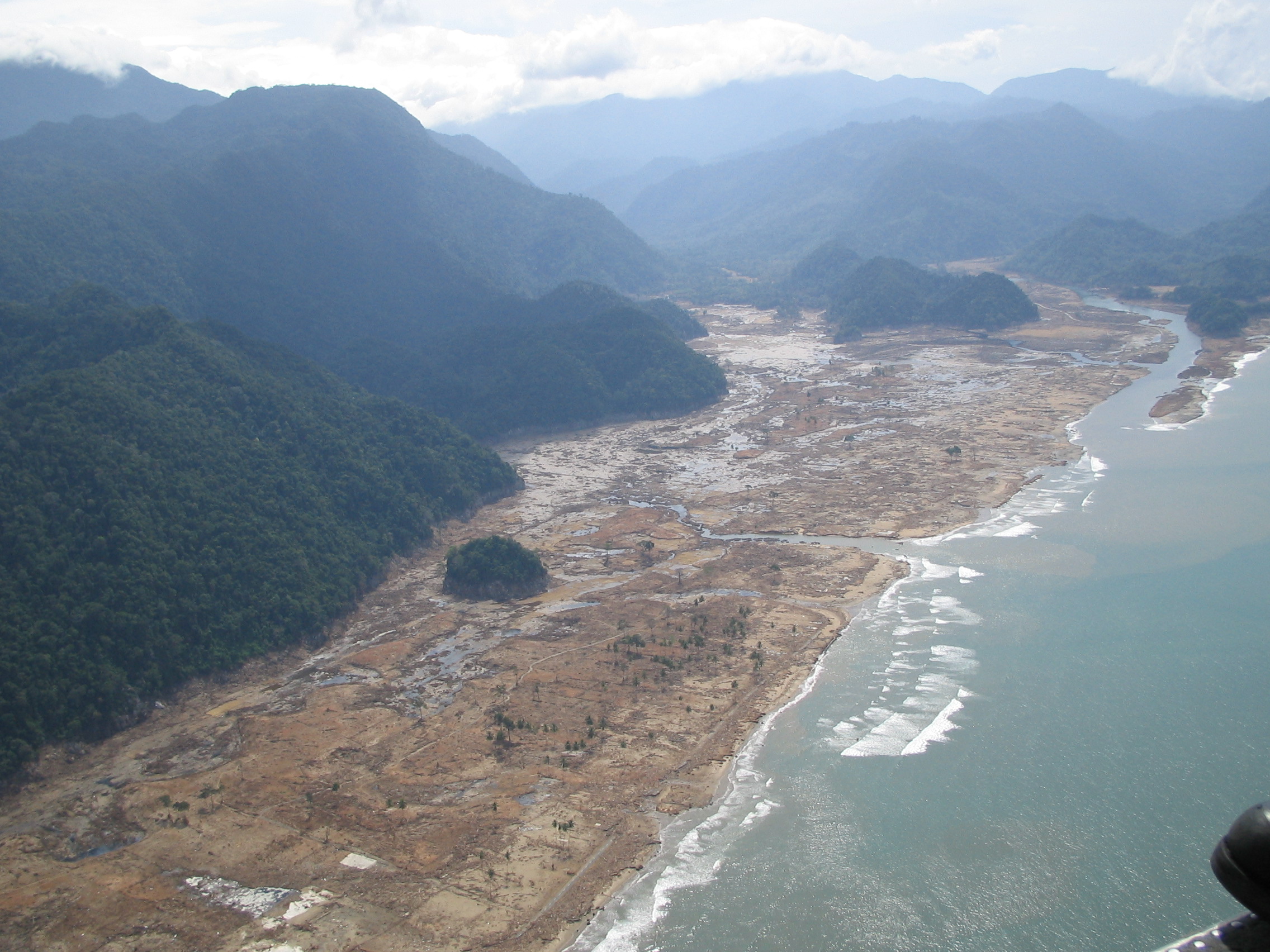 AusAID, CC BY 2.0, Wikimedia Commons
AusAID, CC BY 2.0, Wikimedia Commons
Ultimately, they just want to be left alone
Madhumala Chattopadhyay, is Indian anthropologist who was the first woman to visit the island in the 1990s. She put it plainly in an interview for National Geographic: "[The Sentinelese] have been living on the islands for centuries without any problem. Their troubles started after they came into contact with outsiders. The tribes of the islands do not need outsiders to protect them; what they need is to be left alone."
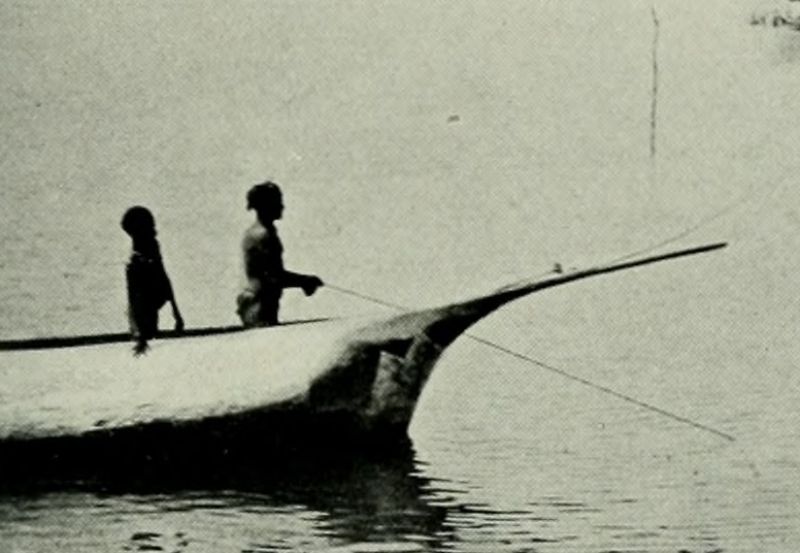 Internet Archive Book Images, Wikimedia Commons
Internet Archive Book Images, Wikimedia Commons
The first time Chau learned of the Sentinelese
Fast forward hundreds of years later—Chau learned about the Sentinelese people in high school through the Joshua Project. The Joshua Project describes the Sentinelese as extremely isolated and restricted by the Indian government. Christians were urged to pray for them and introduce them to the Creator God and "His love."
Chau's preparation required intense focus
Chau prioritized preparing for his mission to North Sentinel over romance and a full-time job. He completed a leadership program, became an emergency medical technician, and stayed physically fit. He also worked as a ranger and nurse in California, living in a small cabin for three summers.
The start of his missionary work
In 2015 and 2016, he visited the Andaman islands four times, connecting with the local Christian community but avoiding North Sentinel. Admitted to a boot camp led by All Nations in 2017, a group in Kansas City dedicated to spreading the worship of Jesus to all people
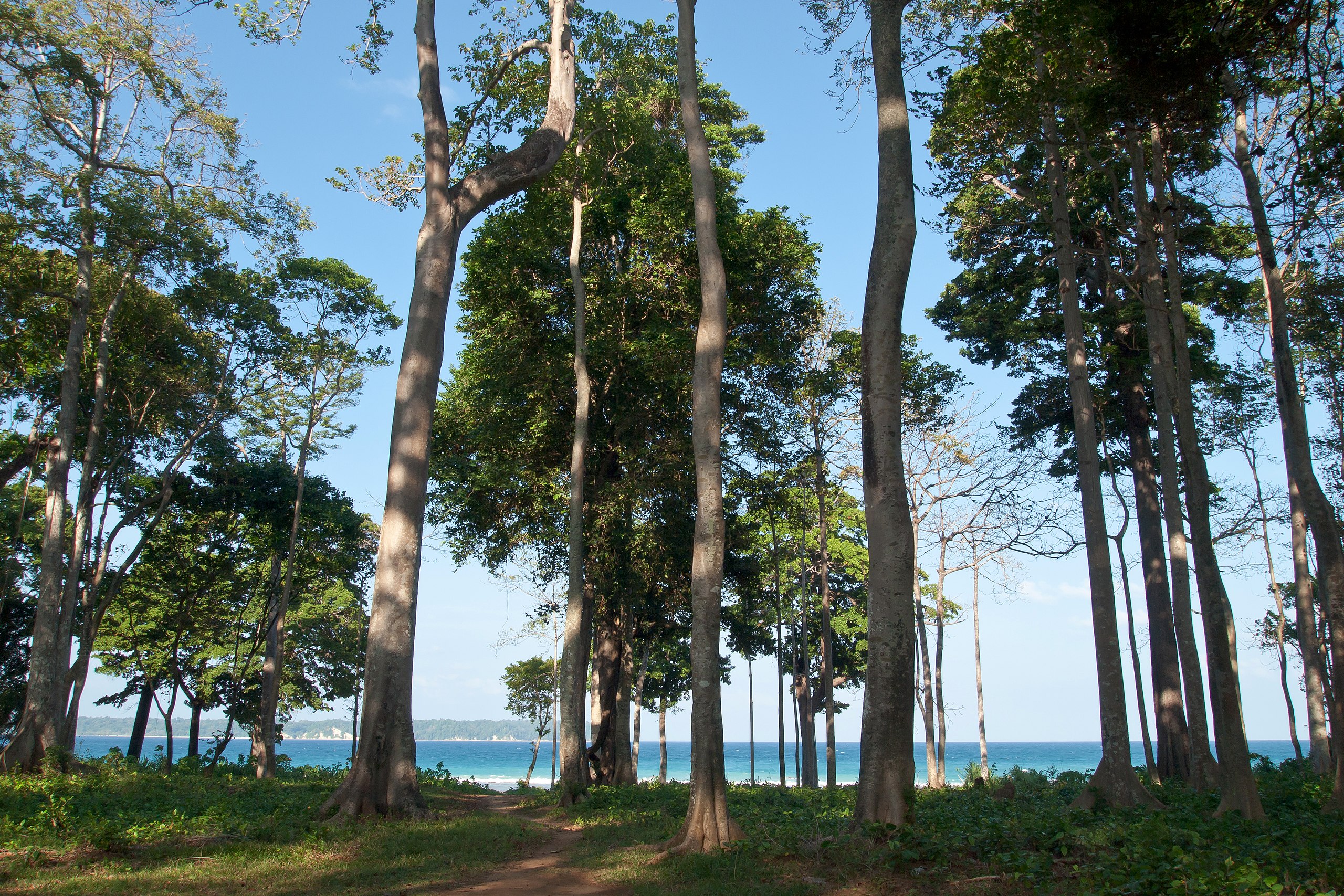 Vyacheslav Argenberg, CC BY 4.0, Wikimedia Commons
Vyacheslav Argenberg, CC BY 4.0, Wikimedia Commons
According to his superiors, he was a natural
At all nations, he was primarily trained to act under conditions in which the natives were hostile. During a simulated exercise at the boot camp, he excelled and was recognized as one of the program's top trainees by leader Mary Ho.
En route to North Sentinel Island
Chau traveled to Port Blair, the capital of the Andaman Islands, on a tourist visa in October of 2018. Upon arrival, he settled in a "safe house" before preparing an "initial contact response kit" for first contact with the Sentinelese tribe. It included information cards, bandages, and gifts.
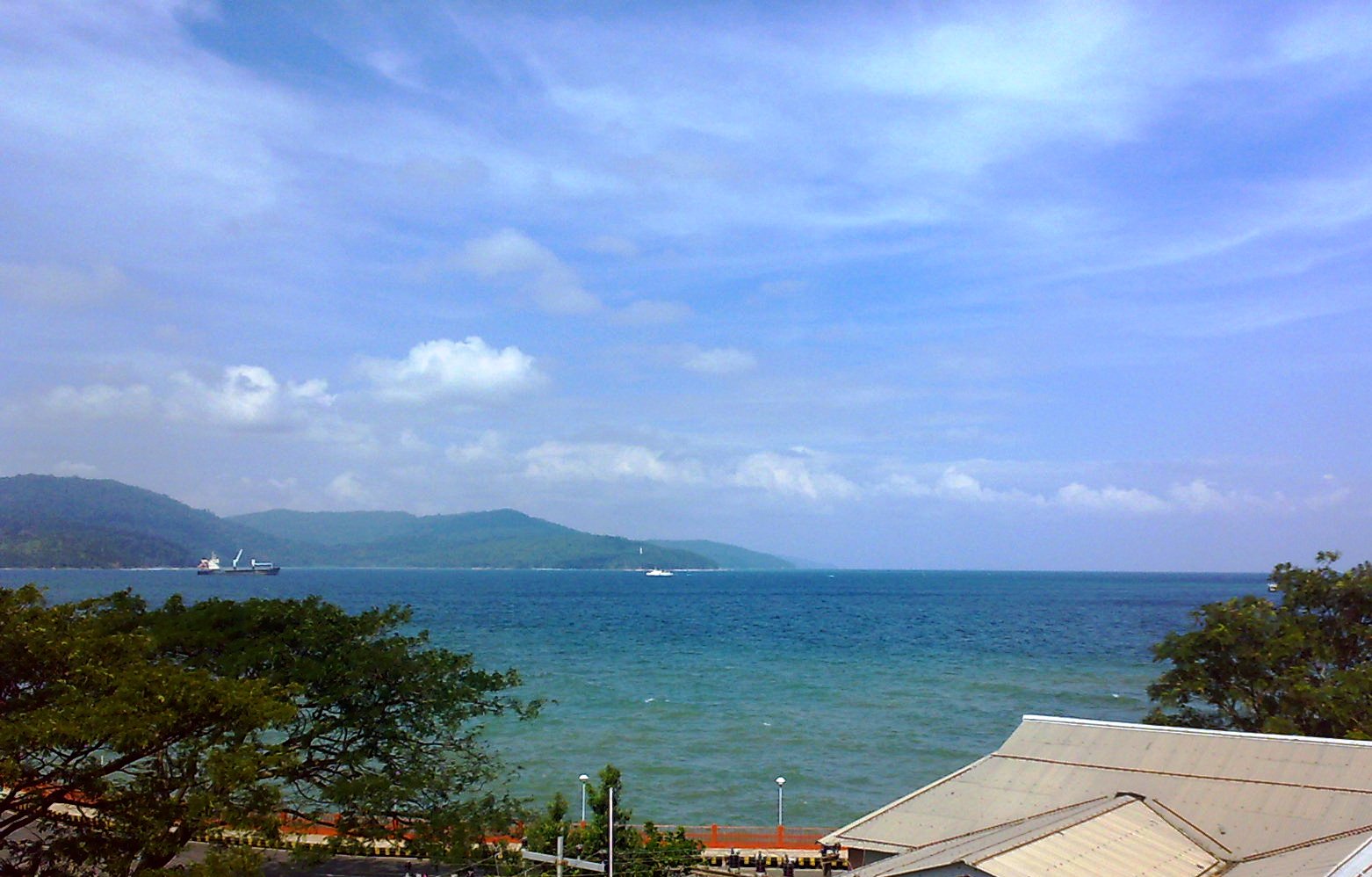 (WT-en) Prateek4, Wikimedia Commons
(WT-en) Prateek4, Wikimedia Commons
His diary is the only insight we have
He documented every single detail of his time spent on the island in a handwritten diary. He was able to write a total of 13 pages, all outlining his interactions with the Sentinelese people. He also went into great detail describing his final days (more on that later).
The calm before the storm
On November 14, Chau and a few fellow fishermen set out for North Sentinel Island under the cover of darkness. He noted seeing glowing plankton that illuminated their journey, as well as fish leaping alongside them.
Chau encounters the Sentinelese
They arrived at the island that evening and the next day, Chau attempted to make contact with the isolated Sentinelese tribe by approaching the shore in a kayak.
Tensions were incredibly high
Approaching a small hut, he saw a group of Sentinelese individuals with yellow-painted faces communicating in high-pitched sounds. Identifying himself as John and expressing love, he got scared when they drew their bows. Acting quickly, he threw fish toward them as an offering, then fled in his canoe.
Chau makes a second attempt
Later that day, he successfully stepped foot on the island. Leaving additional gifts, he slowly approached the hut. Roughly six Sentinelese came out, making loud noises. He tried to to mimic their words, but they just laughed. He then sang worship songs and preached from Genesis, and the Sentinelese seemed to temporarily tolerate him.
Then, a close call...
Suddenly, a young Sentinelese boy shot an arrow at Chau, miraculously hitting the Bible he held instead of his body. Chau inched a little closer to the boy to nudge the Bible in his direction, then he immediately turned around, threw himself into the water, and swam to a fishing boat after Sentinelese took his kayak.
One last attempt to make peace
Alone without nearby boat, he tried again. For some reason, he believed the Sentinelese would be more at ease. He also felt more comfortable not having other fishermen around so they wouldn't witness his death, should it happen.
Accepting his fate
In his diary, he wrote about wanting to live but accepting the possibility of death. He believed he could help more alive, but he accepted that if he died, it was God's will. He asked for forgiveness for anyone trying to harm him on the island.
Chau's fateful day
On 16 November, John Chau asked fishermen to leave him alone before attempting to save the isolated North Sentinel tribe. That was the last time they would see him ever again.
In their eyes, Chau was bad like all the others
It's highly likely that the Sentinelese people saw John Allen Chau as an intruder on their island. Despite being driven off multiple times, he kept returning until he disappeared and was believed to be killed.
The Indian police searched for Chau
After Chau went missing, the Indian police went over to investigate. As they approached the remote island by goat, they saw locals with weapons protecting something unusual. With binoculars, they saw them gathered by shore, holding bows, arrows, spears.
The signs were all there
Indian police believed they were guarding Chau's body. Dependra Pathak, the police chief who led the recovery mission, said that the Sentinelese were very watchful. He believes that if they got any closer, they would have attacked.
Recovery efforts failed
Unfortunately, they were not able to retrieve Chau's body. They made the tough decision to simply turn away. Some anthropologists today beleive that it would be impossible to find and retrieve Chau's body now.
No luck by air
Pathak sai dhe also ordered the coast guard to fly over North Sentinel Island and perform a survey from above. Unfortunately, there were no signs of Chau, alive or dead.
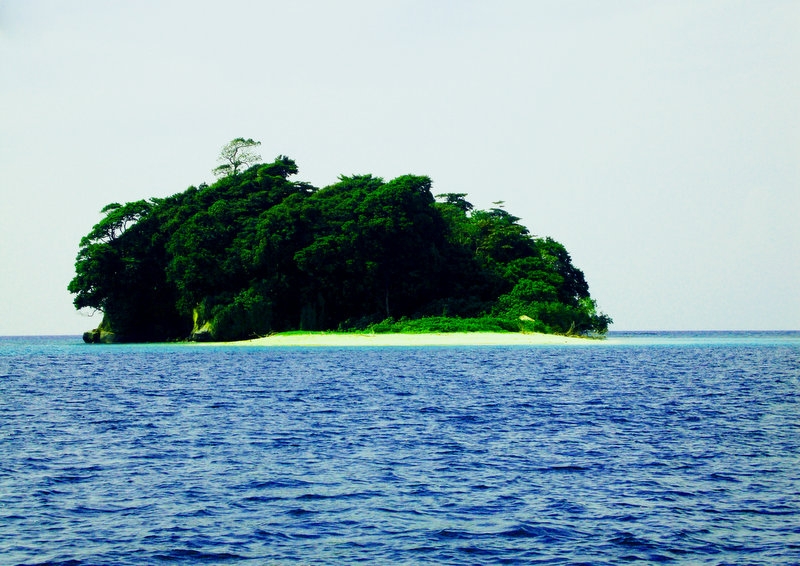 Vaishnav066, CC BY-SA 3.0, Wikimedia Commons
Vaishnav066, CC BY-SA 3.0, Wikimedia Commons
A possible sighting
A few weeks later, some fishermen witnessed a group of Sentinelese burying a body on the beach. They think the body had just been shot with arrows, but they couldn't be certain.
Trouble with the law
Indian law recognizes the unique value of North Sentinel's culture, which is why it strictly prohibits foreign visits. Punishments are mandated for killers, posing challenges for police officers.
Repercussions for the accomplices
Police arrested the fishermen and one other man whohelped Mr. Chau reach the island, charging them with culpable homicide not amounting to murder and breaking rules protecting aboriginal tribes. Islanders are facing a lawsuit for Mr. Chau's murder.
A worldwide media frenzy
In a matter of hours, reporters worldwide captivated audiences with the tale of a 26-year-old American missionary who was murdered by a primitive tribe on a secluded island.
The majority weighs in
Many people from around the world chimed in on the situation, and it seems like most people agree that Chau was an arrogant backpacker who disregarded the tribe's peace and privacy. His belief that he could "rescue" them was seen as incredibly ignorant and in line with Christian supremacist beliefs.
Even Chau's father agreed
Patrick Chau, the father of John Allen Chau, seemed to agree that religion brainwashed his son. He told The Guardian that "extreme Christianity" was the reason why his son met his "not unexpected end." Patrick's words speak volumes considering he himself is a devout evangelical Christian.
 ThePianoMan76, CC BY-SA 3.0, Wikimedia Commons
ThePianoMan76, CC BY-SA 3.0, Wikimedia Commons
Chau is not the first tragedy on the island
In 2006, two Indian poachers Sunder Raj and Pandit Tiwari were on a boat that drifted onto the shore of North Sentinel Island. Poachers illegally catch turtles, lobsters, and sea cucumbers in the surrounding waters. When the Sentinelese saw them, they attacked and killed the two on sight.

